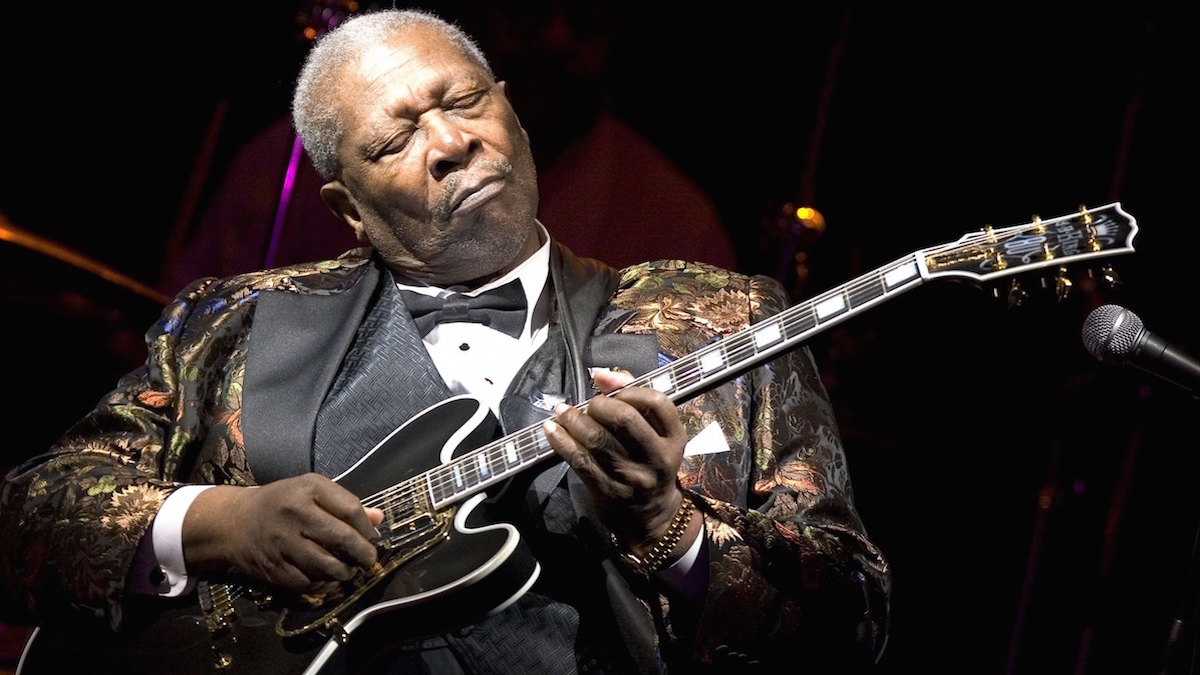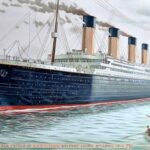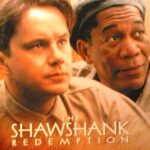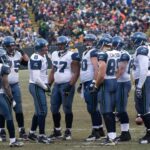How do you choose the best guitarists of all time? It’s no easy task. Some players are technically brilliant, some are less skilled but make up for it in terms of personality and live performance, and some simply have that “X-factor” — a little bit of everything that makes them true guitar legends.
We looked at rankings and polls based on expert opinions and the views of music-lovers, and here’s the result: 28 of the top guitarists of all time.
28. Kurt Cobain
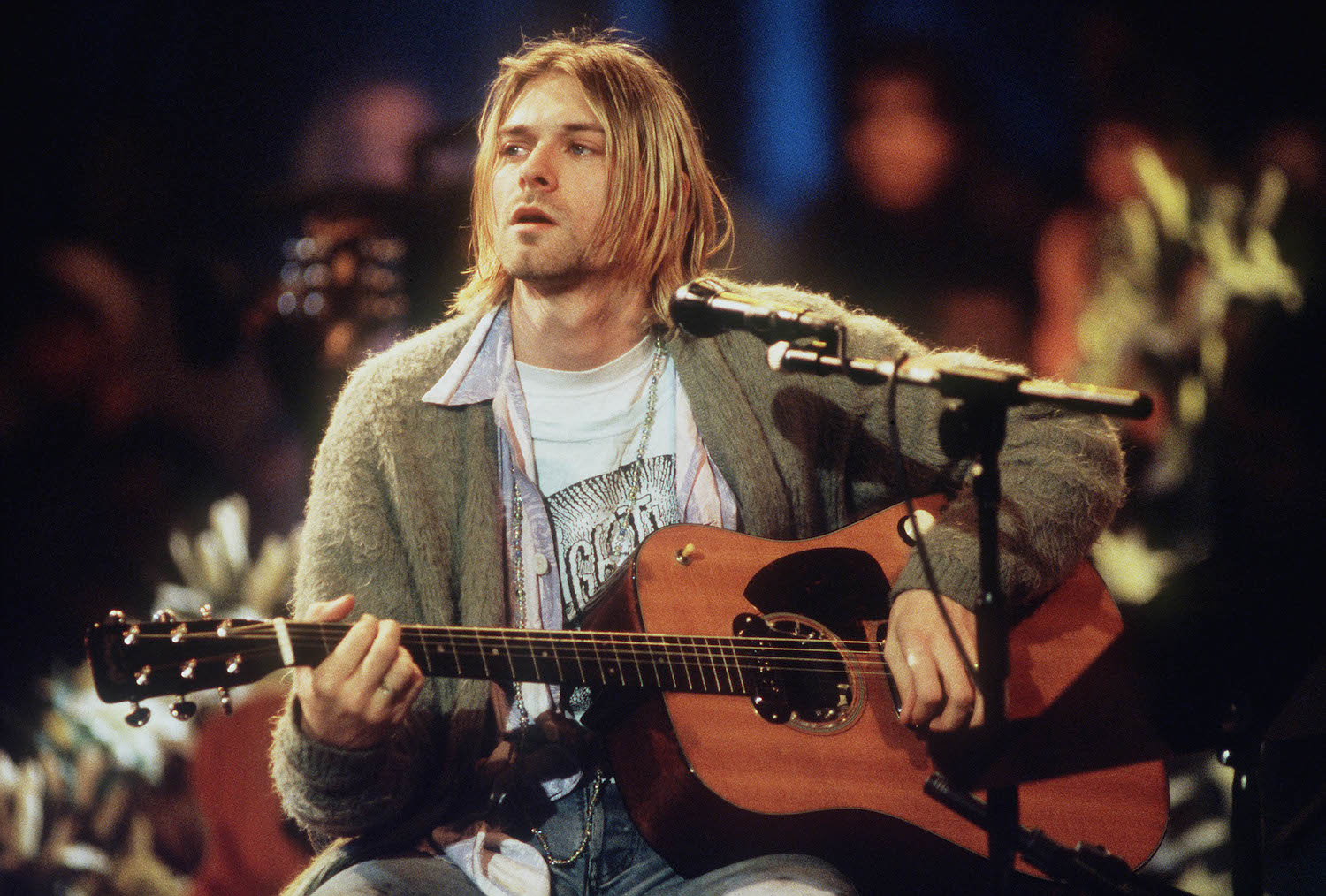
The late Kurt Cobain was far from the “best” guitarist in terms of technical ability, but his cultural influence was far-reaching. His rudimentary style inspired an entire generation of musical newbies to keep practicing. The teenage Cobain reportedly took guitar lessons for only a few weeks; “Nevermind” producer Butch Vig told The Washington Post that Cobain couldn’t play Eddie Van Halen speed scales or incredibly complicated jazz chords — nor did he want to do so — but he was a great player with a natural talent for creating rhythmic, riffy chord patterns with great hooks.
27. Robert Johnson
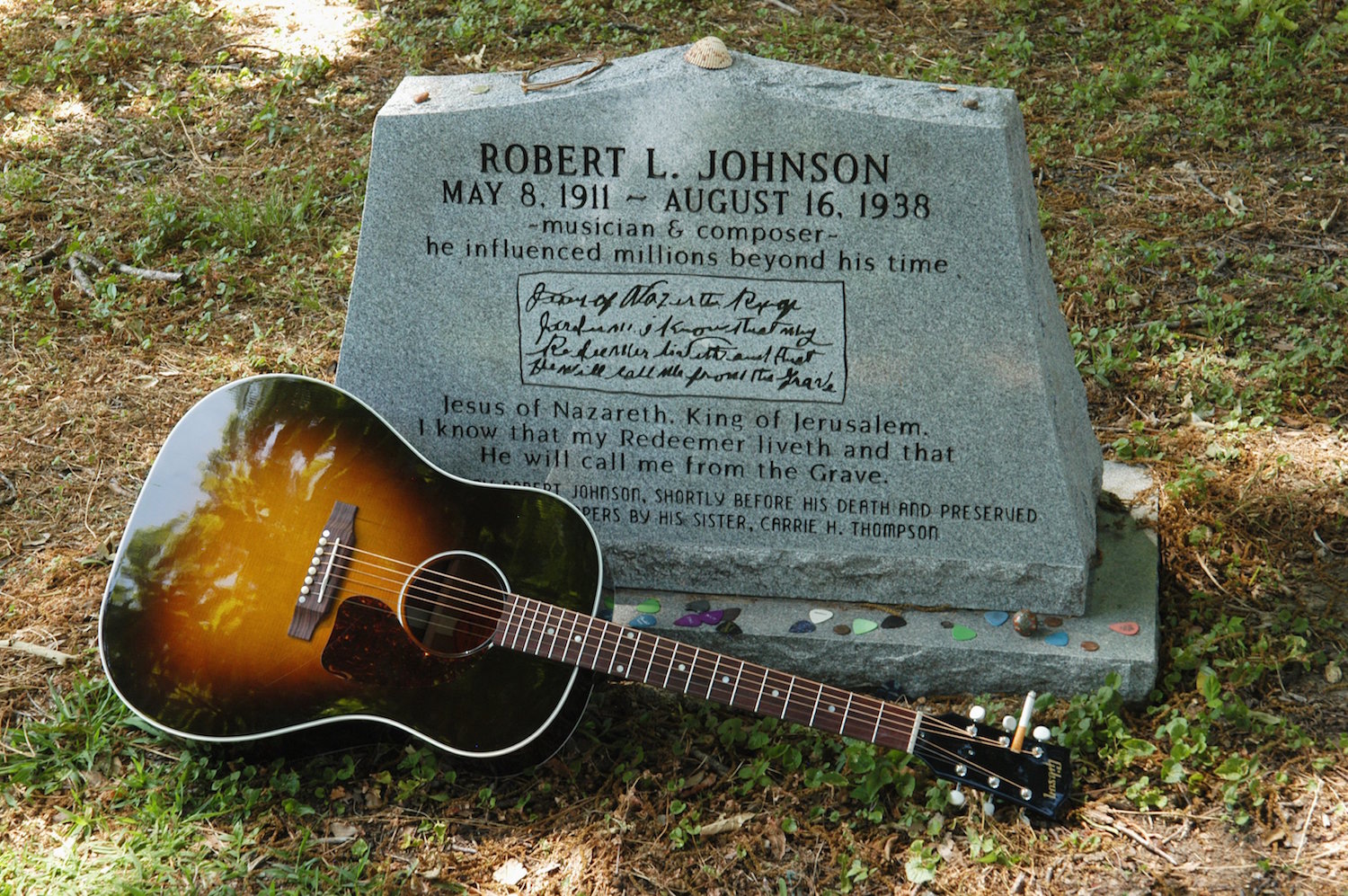
The products and services mentioned below were selected independent of sales and advertising. However, TheDelite may receive a small commission from the purchase of any products or services through an affiliate link to the retailer's website.
Described as “the greatest blues guitarist of all time” by Guitar Player, Robert Johnson is responsible for many guitar licks that are still heard in new music today. Before his death in 1938 at the age of 27, Johnson recorded 29 songs that have influenced every rock guitarist since, from Keith Richards to Bob Dylan. Of playing “King of the Delta Blues Singers,” the 1961 LP that rescued Johnson from obscurity, Dylan wrote in his autobiography “Chronicles, Volume 1, “The vibrations from the loudspeaker made my hair stand up. The stabbing sounds … could almost break a window.”
26. Bonnie Raitt

Bonnie Raitt’s nimble fingerpicking and skillful sliding made her a standout ’70s guitarist — even more so because she was a woman playing what was still widely considered a man’s instrument (she got her first guitar at age 8). Raitt’s guitar was her connection to her blues roots (The Telegraph described her as “blues hipster for the ages”), and although she often sticks to vocals on stage, the moment she reaches for her guitar for a spellbinding solo is guaranteed to raise the roof.
25. Joni Mitchell
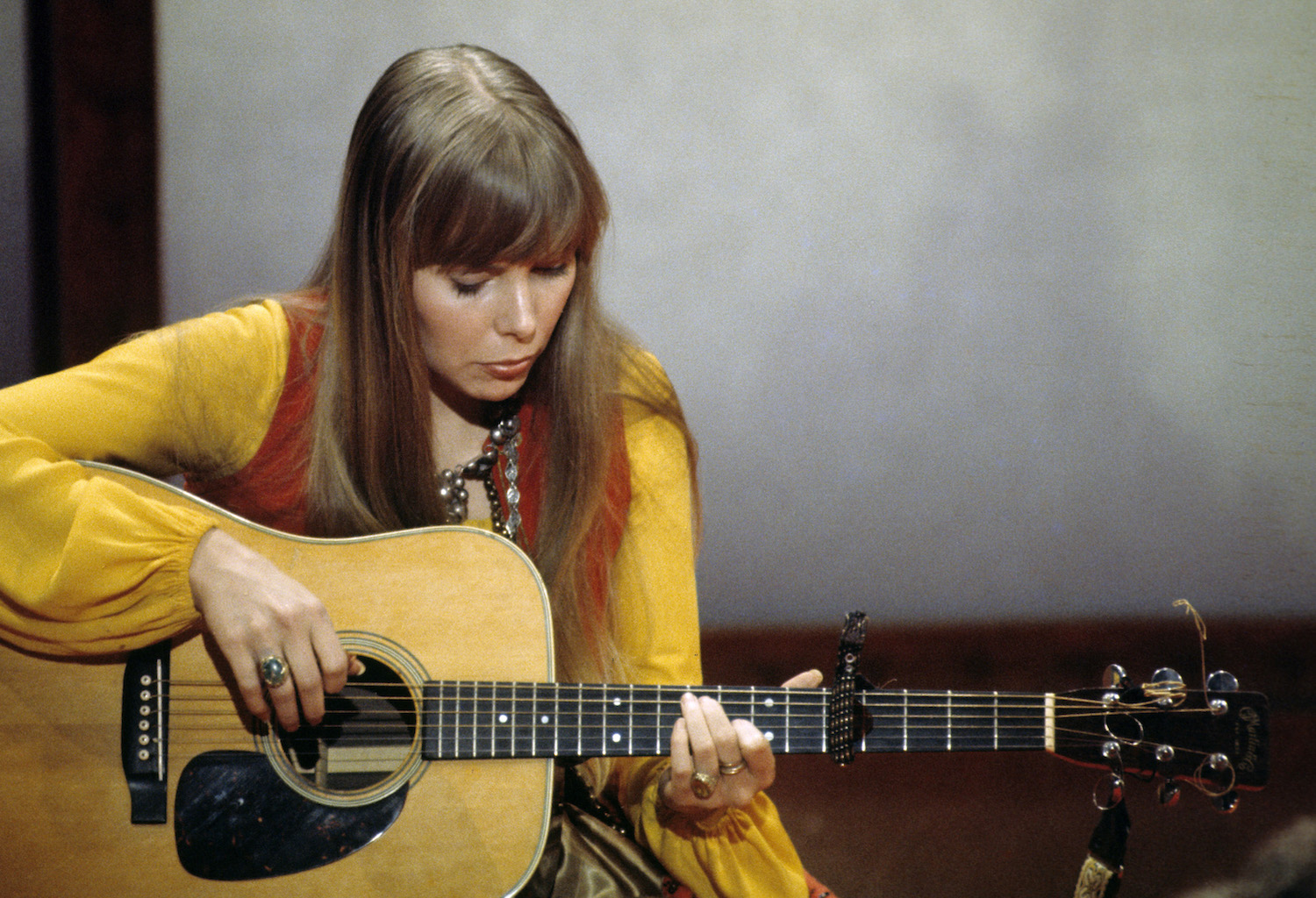
Joni Mitchell didn’t let a weak left hand (following childhood polio) hinder her music career; instead, she used it to her advantage, creating what she called “Joni’s weird chords” — over 50 different guitar tunings that opened up a whole new world of harmony and structure.
“Joni had mastered the idea that she could tune the guitar any way she wanted,” wrote David Crosby, who worked with Mitchell on her 1968 album “Song to a Seagull,” for Rolling Stone. “Match her and Bob Dylan up as poets, and they are in the same ballpark. But Joni was a much more sophisticated musician.”
24. Tom Morello
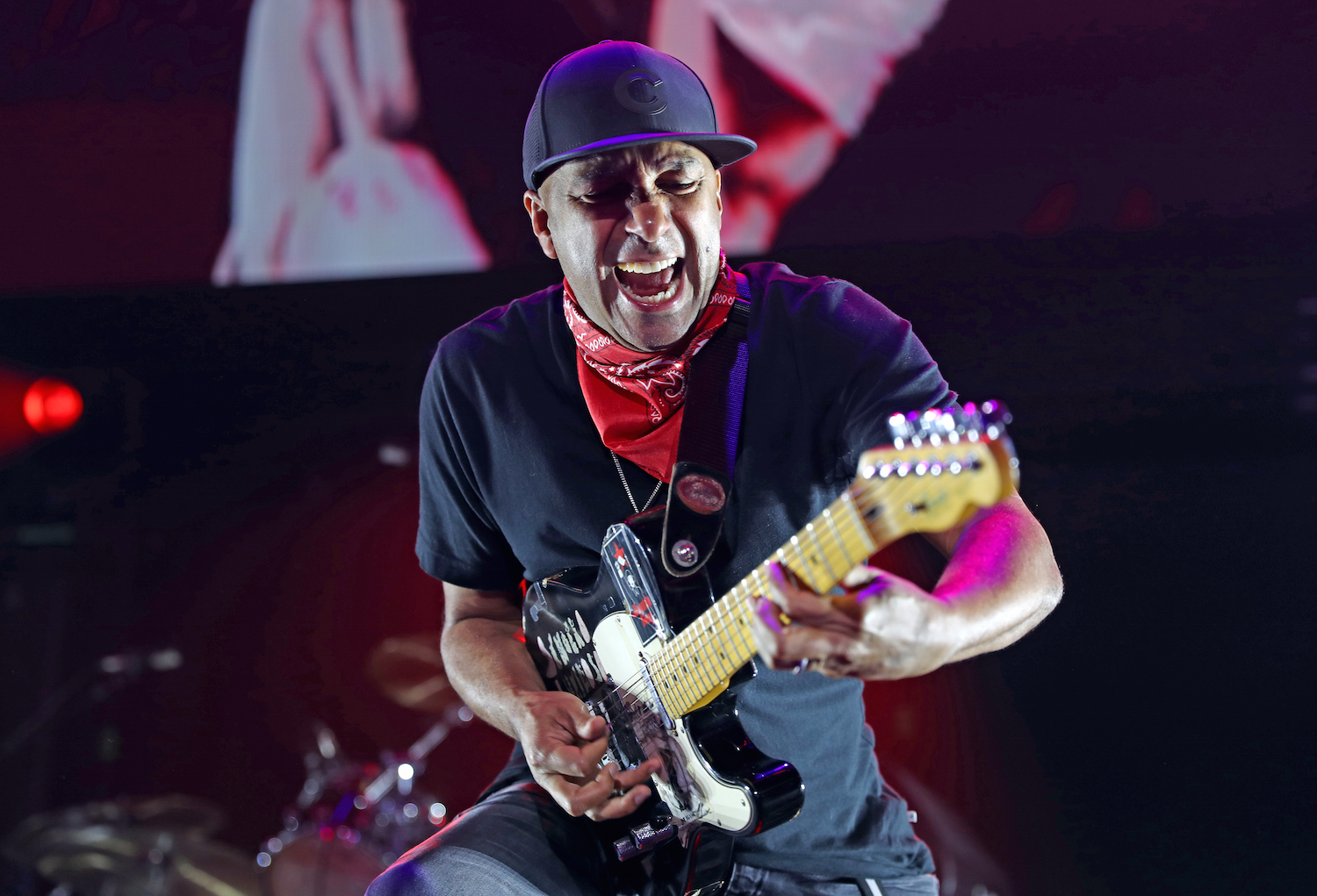
With a musical imagination that seemingly knows no limits and an ability to take a plethora of disparate cultural influences and create a cohesive sound, Tom Morello (Rage Against the Machine and Audioslave) is a trailblazer.
“In the world of cutting-edge modern electric guitarists, Tom Morello ranks foremost,” Wayne Kramer told Louder Sound. “I have played with him on recording sessions and dozens of live performances, and what my experience has shown me is that he is among the most original and creative players in the game.”
23. Chet Atkins
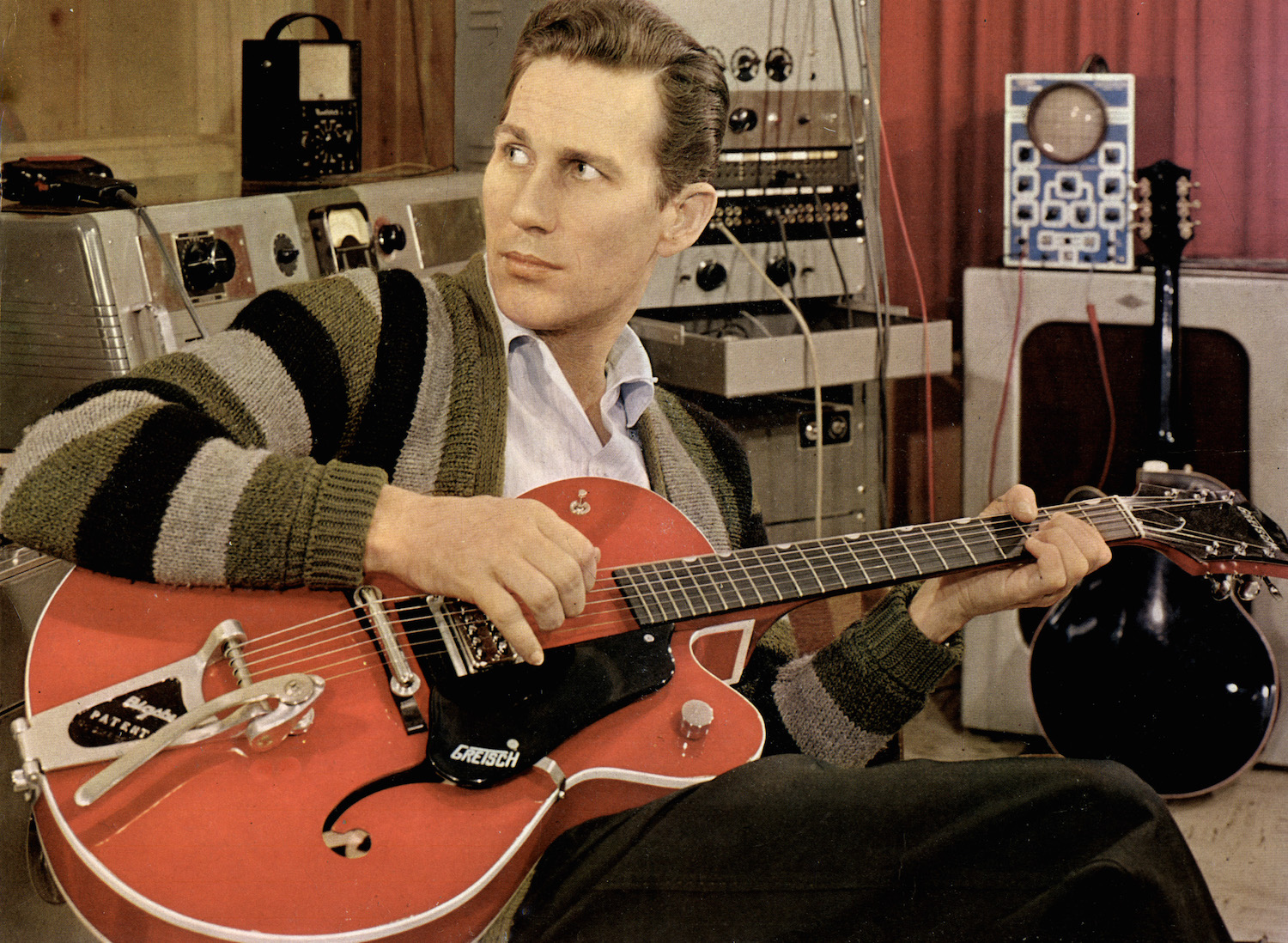
It’s often said that record executive and producer Chet Atkins came up with the “Nashville” sound that invigorated country music in the 1960s; aside from that impressive achievement, he was an inventive guitarist with a distinctive thumb-and-three-finger picking style. He told Rolling Stone in 1976 that there was no magic involved: “I just had a damn guitar in my hands 16 hours a day, and I experimented all the time,” he said.
For Australian fingerstyle virtuoso Tommy Emmanuel, Atkins was the ultimate icon. “Chet, of course, blew everyone’s mind when he came along,” Emmanuel told Music Radar. “When I was a kid, Chet Atkins was the name on everyone’s lips; everyone wanted to be like him. His early recordings, especially a lot of his solo stuff, were so incredibly arranged and recorded. No one had his kind of abilities.”
22. John Frusciante

Often overlooked in best-guitarists lists, former Red Hot Chili Peppers’ John Frusciante was voted the best guitarist of the past 30 years in a 2010 BBC poll. Listeners of digital radio station BBC 6 Music ranked him above Slash and Muse’s Matt Bellamy (second and third place in the poll, respectively) to put him in the top spot. Rolling Stone called Frusciante “a remarkably elastic stylist and a gifted sculptural arranger who pushed the Chilis to explore new worlds without getting in the way of their funk-pumped energy.”
21. Les Paul
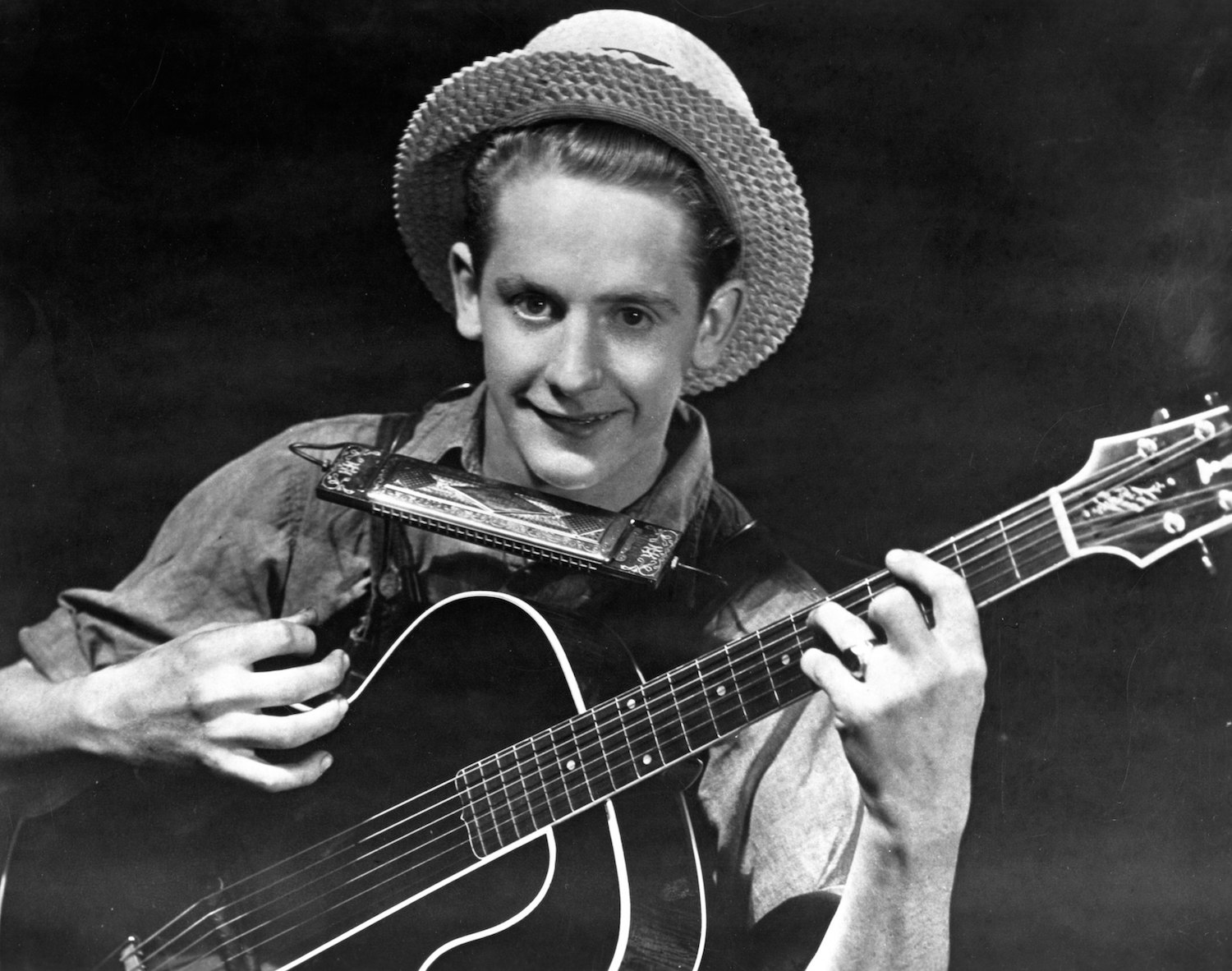
Les Paul didn’t just invent a solid-body guitar (the Gibson Les Paul, one of the most popular guitars in the world and favored by the likes of Slash and Jimmy Page), he was one of the most consummate players of his time, creating “the very best guitar sounds of the 1950s,” according to Brian Wilson. Not long before his death in 2009 at age 94, Paul was still performing weekly at a New York jazz club.
20. Elizabeth Cotten
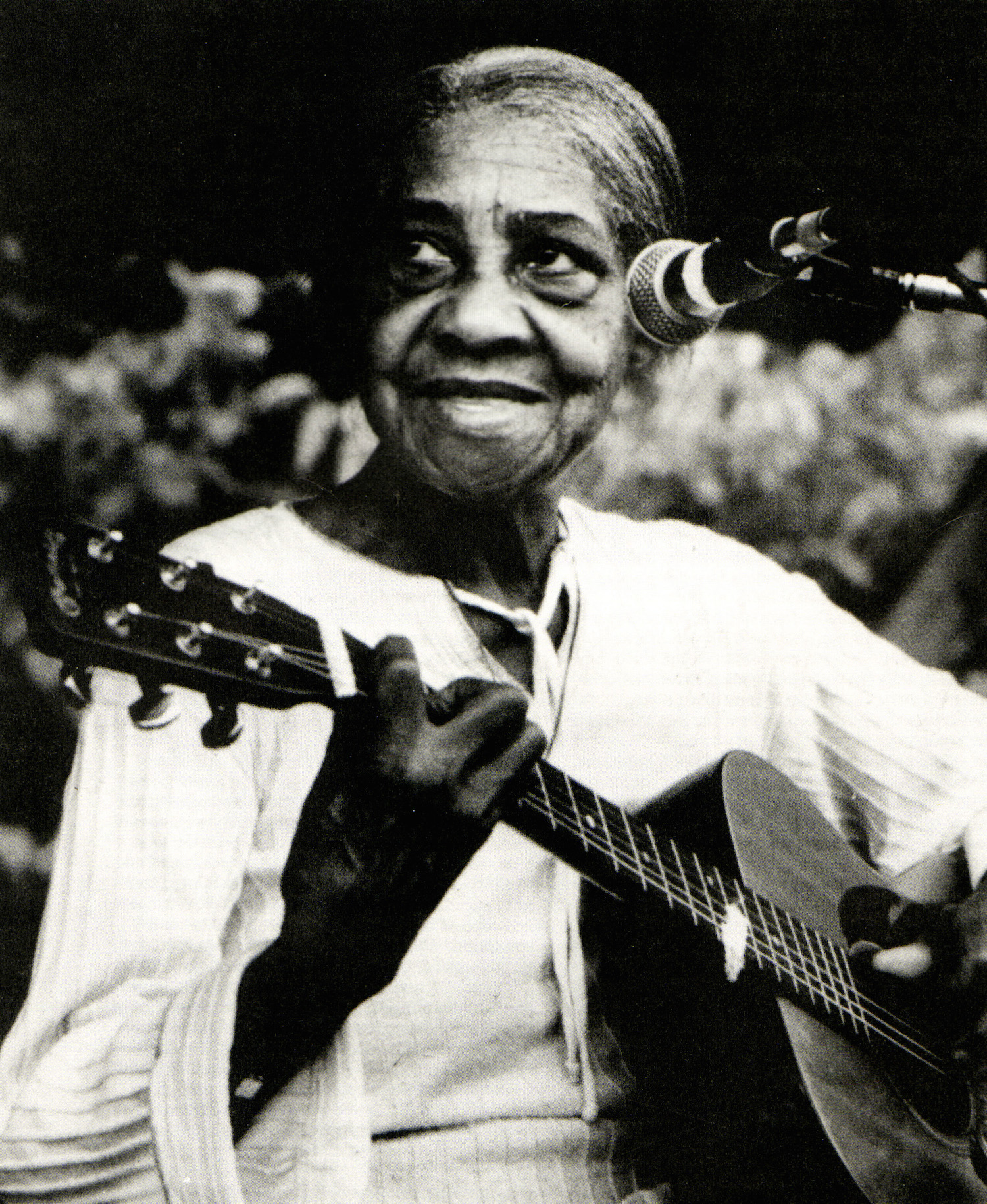
Blues and folk musician Elizabeth Cotten, born in 1893, was never as famous as the song she composed on a Sears brand guitar at age 11. “Freight Train” went on to become a hit for Peter, Paul and Mary in 1963, and has been covered by many other artists, including Bob Dylan and Jerry Garcia. Left-handed Cotten played a guitar strung for a right-handed player upside down (like Jimi Hendrix), resulting in the smooth two-finger picking style that became known as “Cotten-picking.”
In 1985, at age 93, Cotten finally had a taste of the recognition she deserved from the music industry, winning a Grammy for Best Ethnic or Traditional Folk Recording for her album “Elizabeth Cotten — Live!”
19. George Harrison
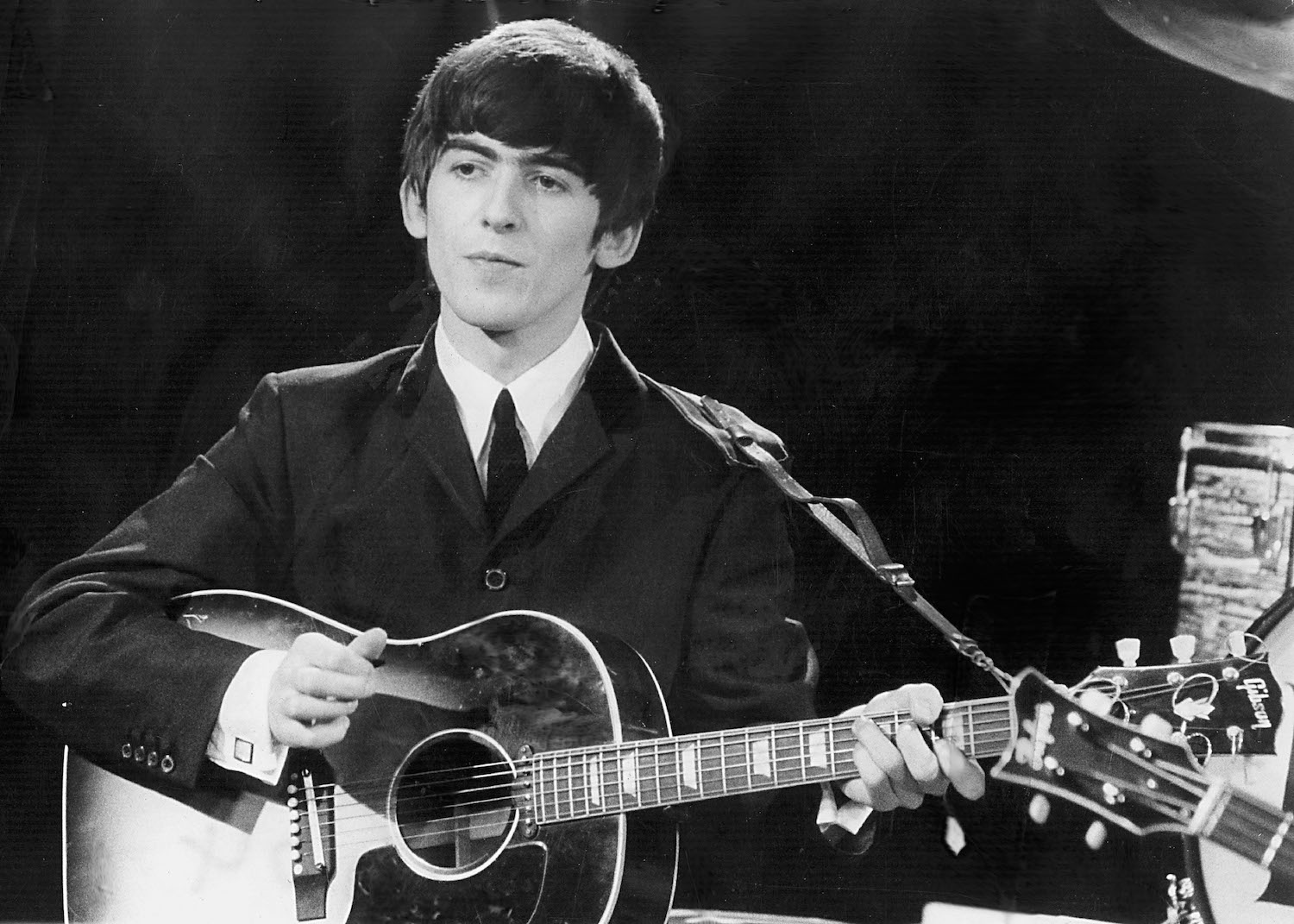
George Harrison took the role of the guitar in pop music to a whole new level, both during his Beatles days and his subsequent solo career.
“He was very in tune when he played, the slide was very precise, and just a beautiful vibrato on it,” wrote Tom Petty for Rolling Stone. “It really sounded like a voice, like a very distinct, signature voice that came out of him. Just listen to those records. They’re so immaculate, so inventive.”
There’s no doubt that Harrison inspired generations of young people to play guitar.
“To me, George Harrison is the one,” Elliot Easton of The Cars told Louder Sound. “A lot of the guys in my generation that saw Harrison play, that’s how we learned how to be a lead guitarist in a band.”
18. Mark Knopfler
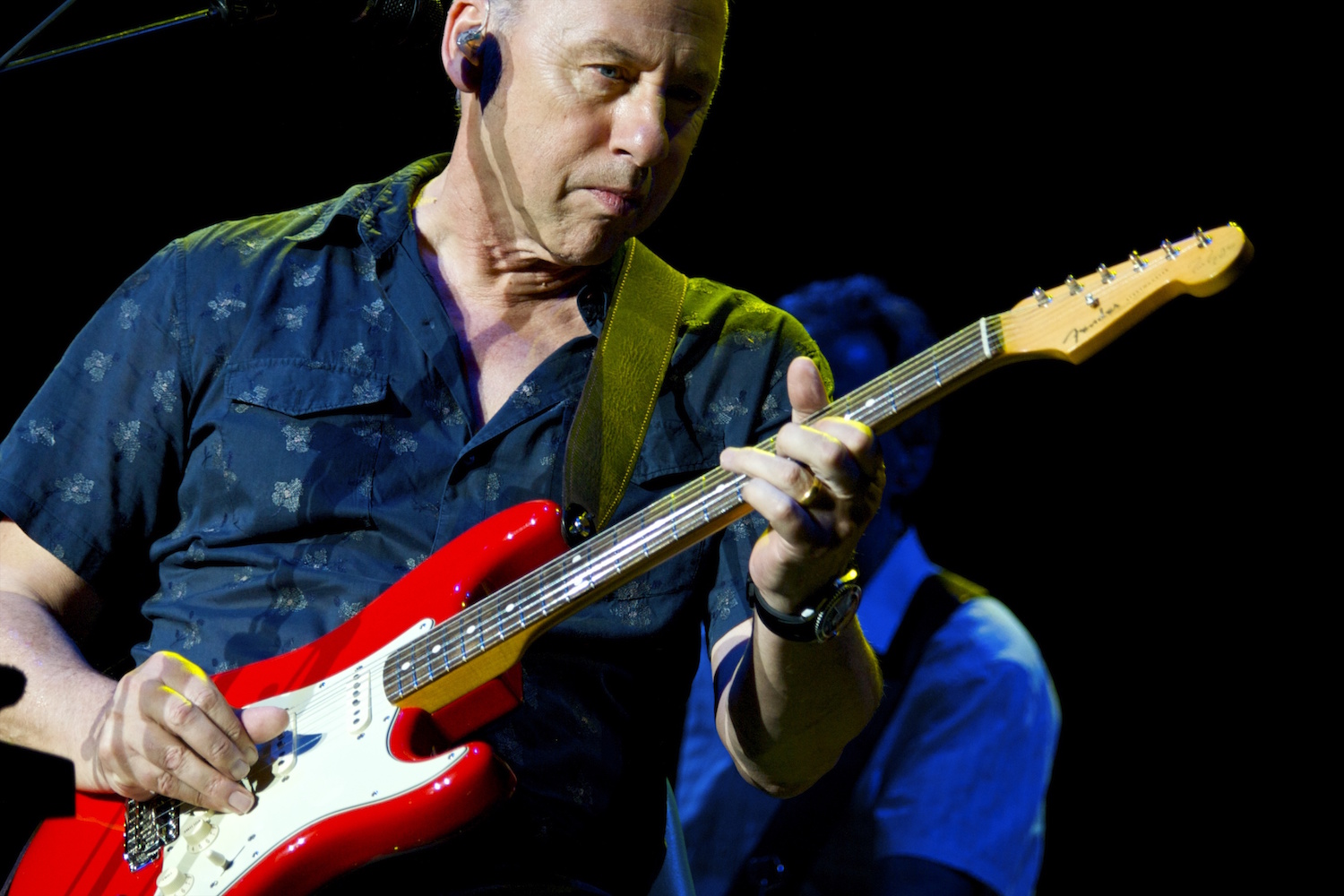
Mark Knopfler’s signature style was playing without a pick, a technique he described as “something to do with immediacy and soul.” Knopfler had both of those things in spades, and in the stripped-down, hard-edged punk era of the late 1970s, his attention to detail and expressive harmonies for Dire Straits set him apart from the crowd.
“Mark Knopfler’s the man,” Archie Cruz from Finnish rock band Santa Cruz told Louder Sound. “The way he uses his fingers for tone has influenced me quite a lot. Love the subtle nuances this guy gets out of the guitar.”
17. Prince
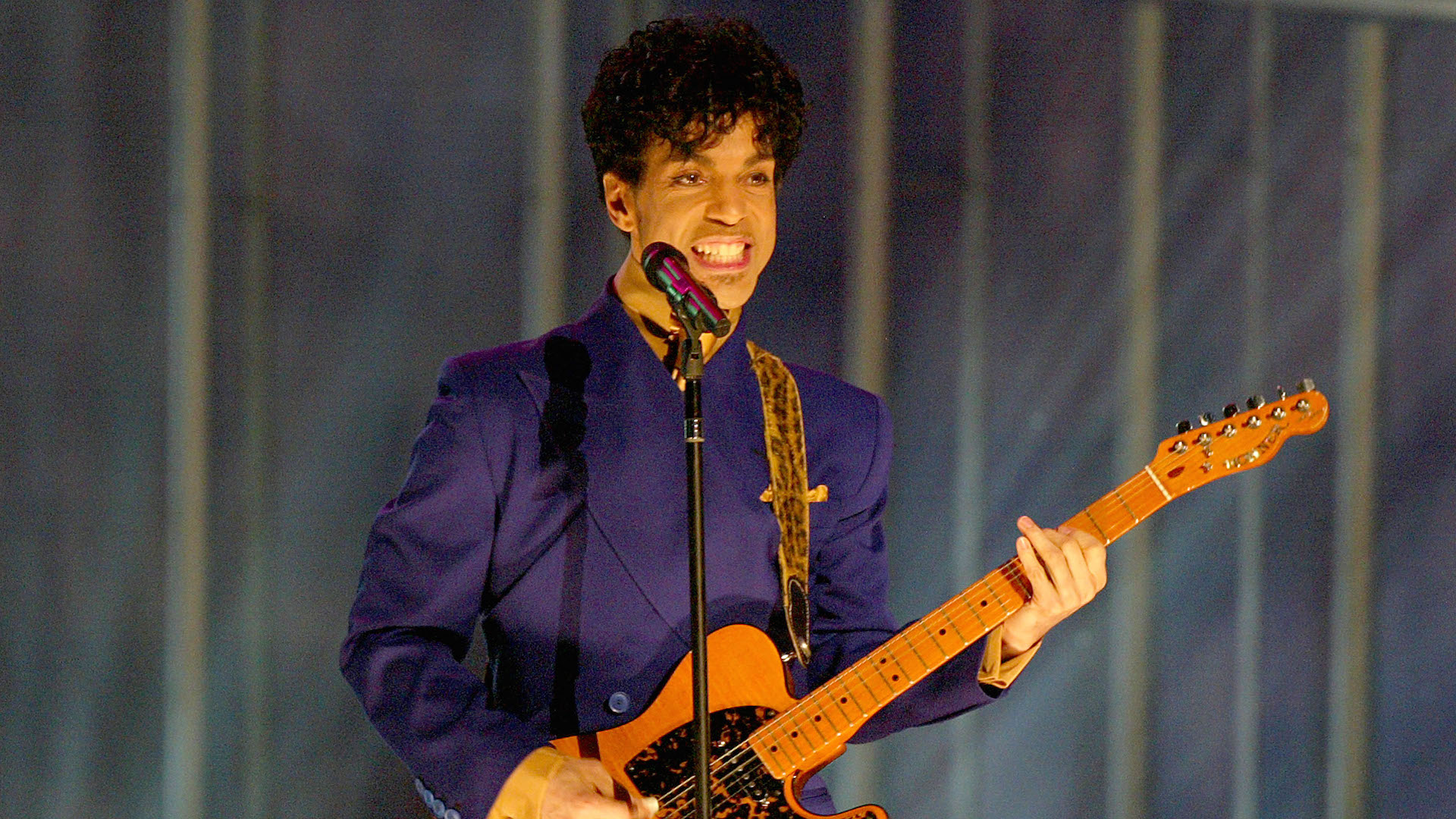
Based solely on his 2004 performance at the Rock and Roll Hall of Fame (a tribute to George Harrison that led — yet again — to comparisons with Jimi Hendrix), many music fans put Prince as the No. 1 guitarist of all time. Eddie Vedder is one person who agrees; following Prince’s death in 2016, the Pearl Jam frontman tweeted that the musical legend “was probably the best guitar player we’ve ever seen.”
16. Alex Lifeson
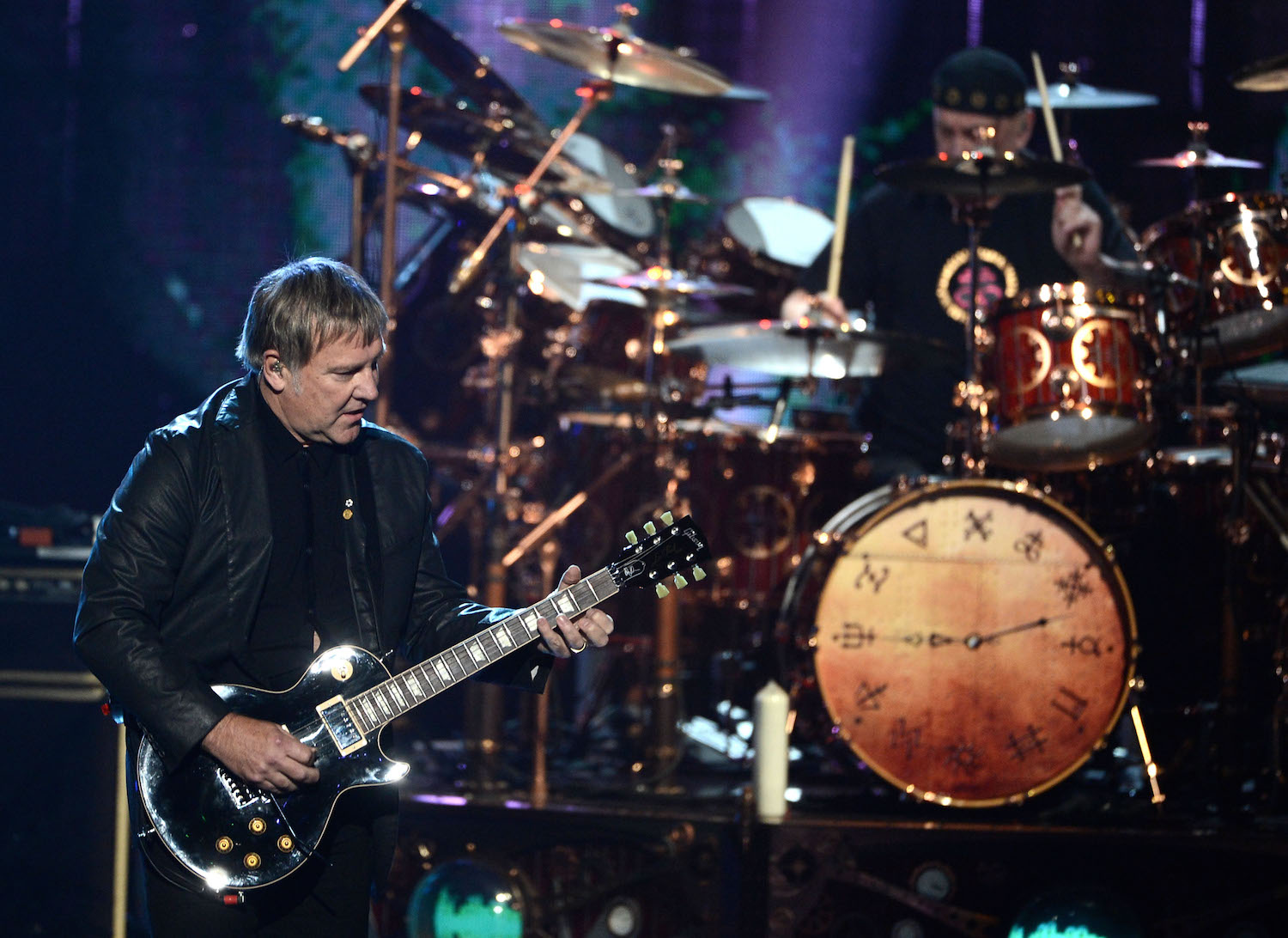
As guitarist of progressive rock band Rush, Alex Lifeson took listeners to another world.
“I never knew rock music could astound in this way,” astronomer Dr. Stuart Clark told Louder Sound. “I went to Planet Rush.”
Another fan is Dream Theater guitarist John Petrucci. When asked during a “Rockstars in Cars” video to name his “Desert Island Chord” (one chord you can play forever), he chose Lifeson’s opening chord from “Hemispheres.”
“It’s the F-sharp major with the added fourth and the flat seven. That should really be named ‘the Alex Lifeson Chord,’ because he invented that,” said Petrucci.
15. Keith Richards
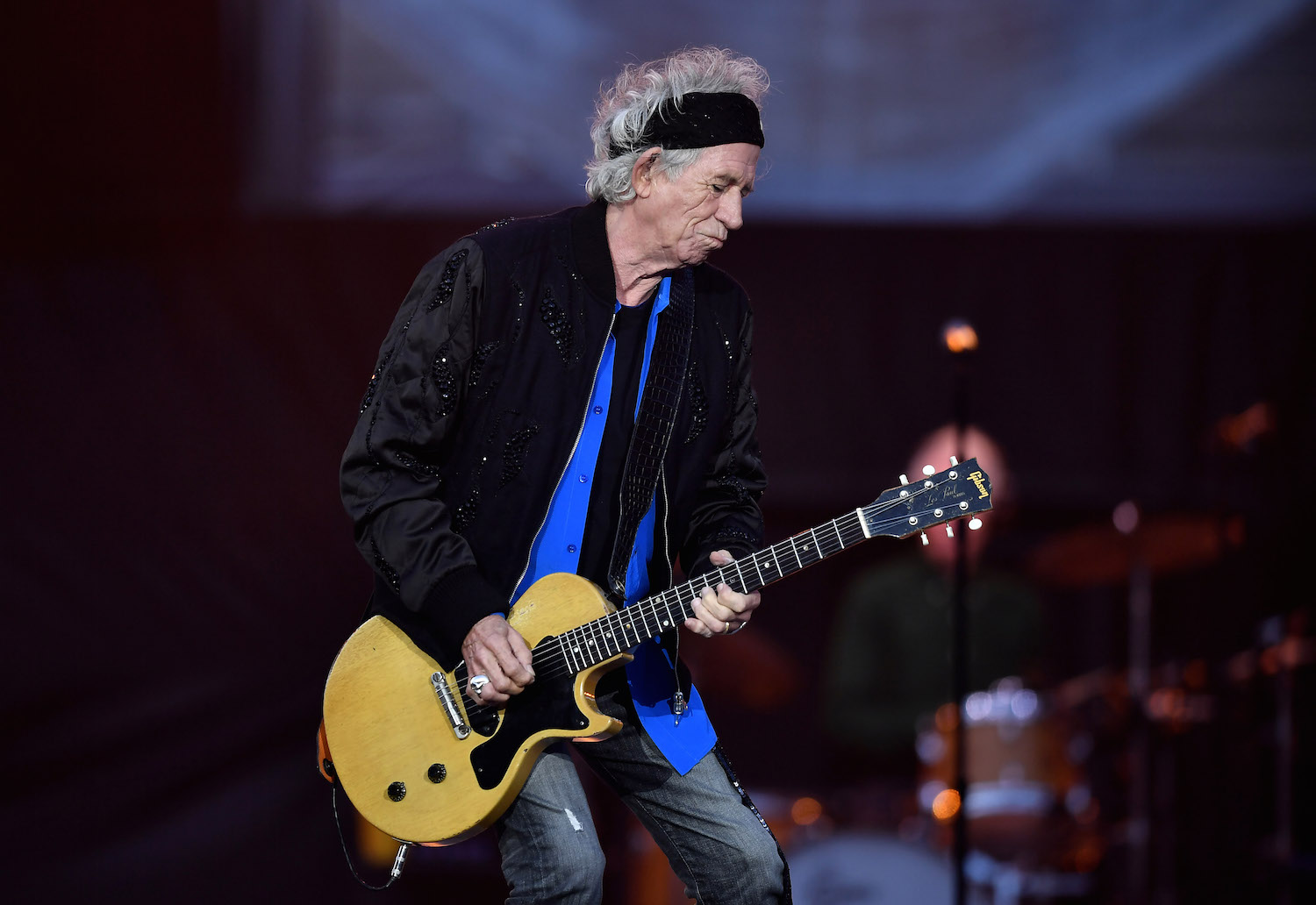
At the very core of the Rolling Stones sound is guitarist Keith Richards’ innovative altered tunings. Rich Robinson, former guitarist for the Black Crowes, told Louder Sound of Richards’ distinctive tone, “Sometimes it can be really sharp, like the biting sound when he plays his solos, but then he has this amazing rhythm and the timing with which he plays. And the note and the chord choices that he makes are unique to Keith.”
“He had some cool tuning, a beautiful chord so well-tuned that it sings,” wrote Nils Lofgren of the E Street Band for Rolling Stone. “That is the core of every great guitar part on a Rolling Stones record. Keith finds the tuning that allows the work — the fretting, muting strings — to get out of the way of what he’s feeling.”
14. Randy Rhoads
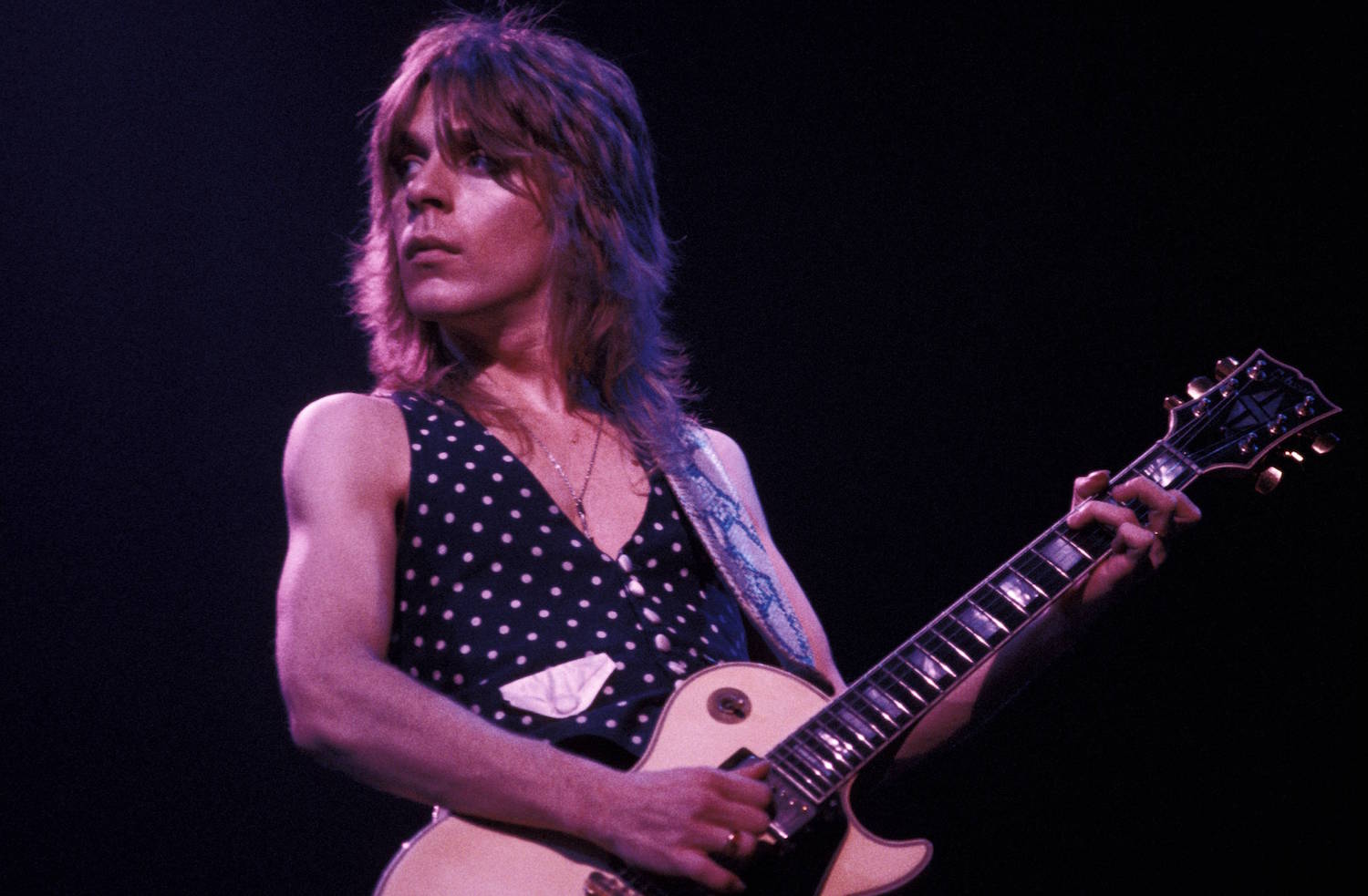
His career was cut short before he reached his musical peak (he was killed in a plane crash in 1982 at age 25), but Randy Rhoads and his flawless, structured solos on Black Sabbath and Ozzy Osbourne albums set the standard for future metal-guitar soloists. Classic Rock magazine hailed him “the guitarist who changed the world.”
13. Slash
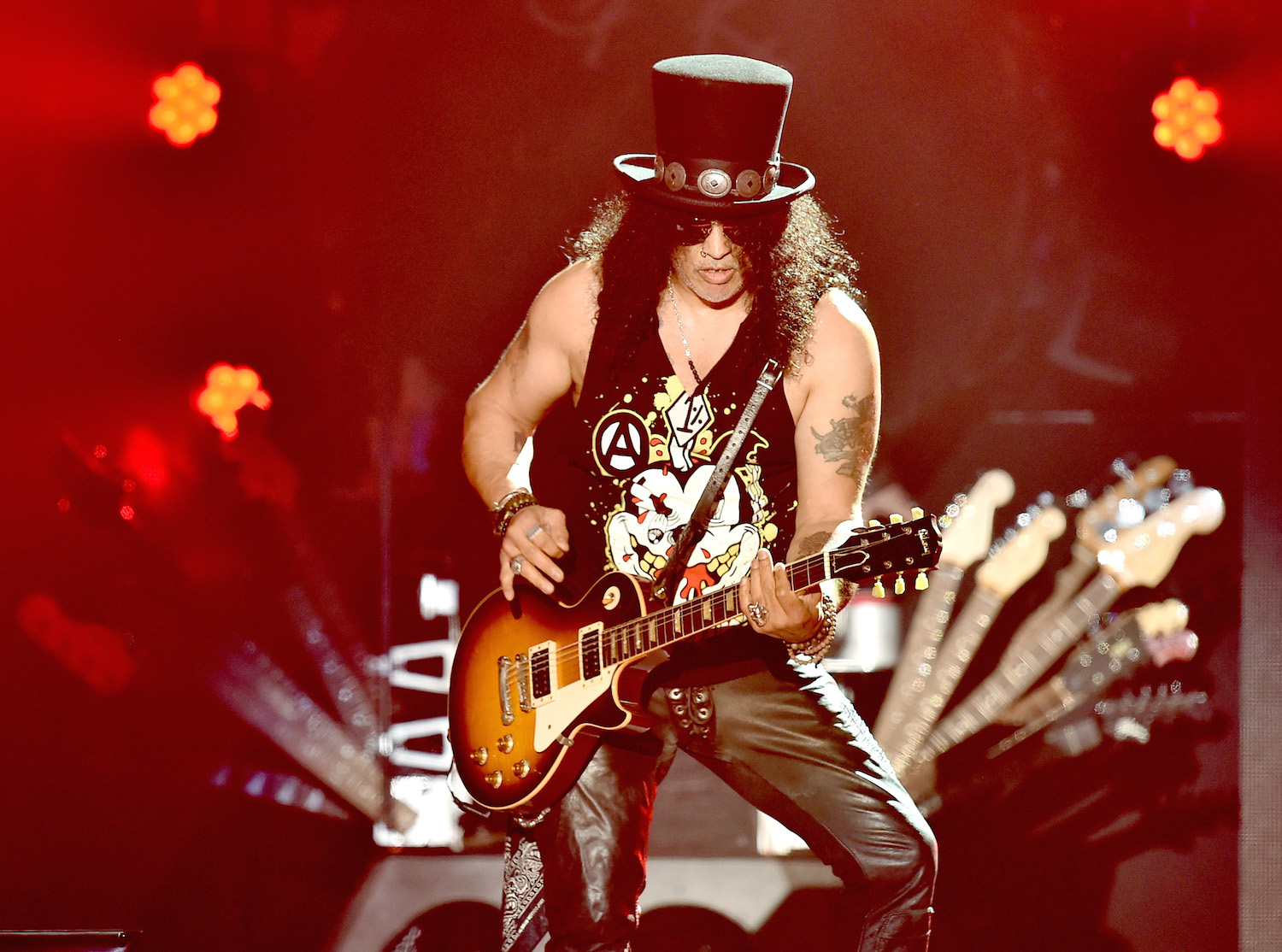
Guns N’ Roses guitarist Slash is responsible for some of the most memorable riffs of all time and his “November Rain” and “Sweet Child o’ Mine” solos (among many others) will go down in history.
“He’s such a character guitar player: You can tell within one measure, ‘That’s Slash.’ There’s no question,” Myles Kennedy of Alter Bridge told Louder Sound. “That’s a real gift, because a lot of players might be really great technically, or they might have a great emotional thing, but Slash has all that.”
12. Pete Townshend
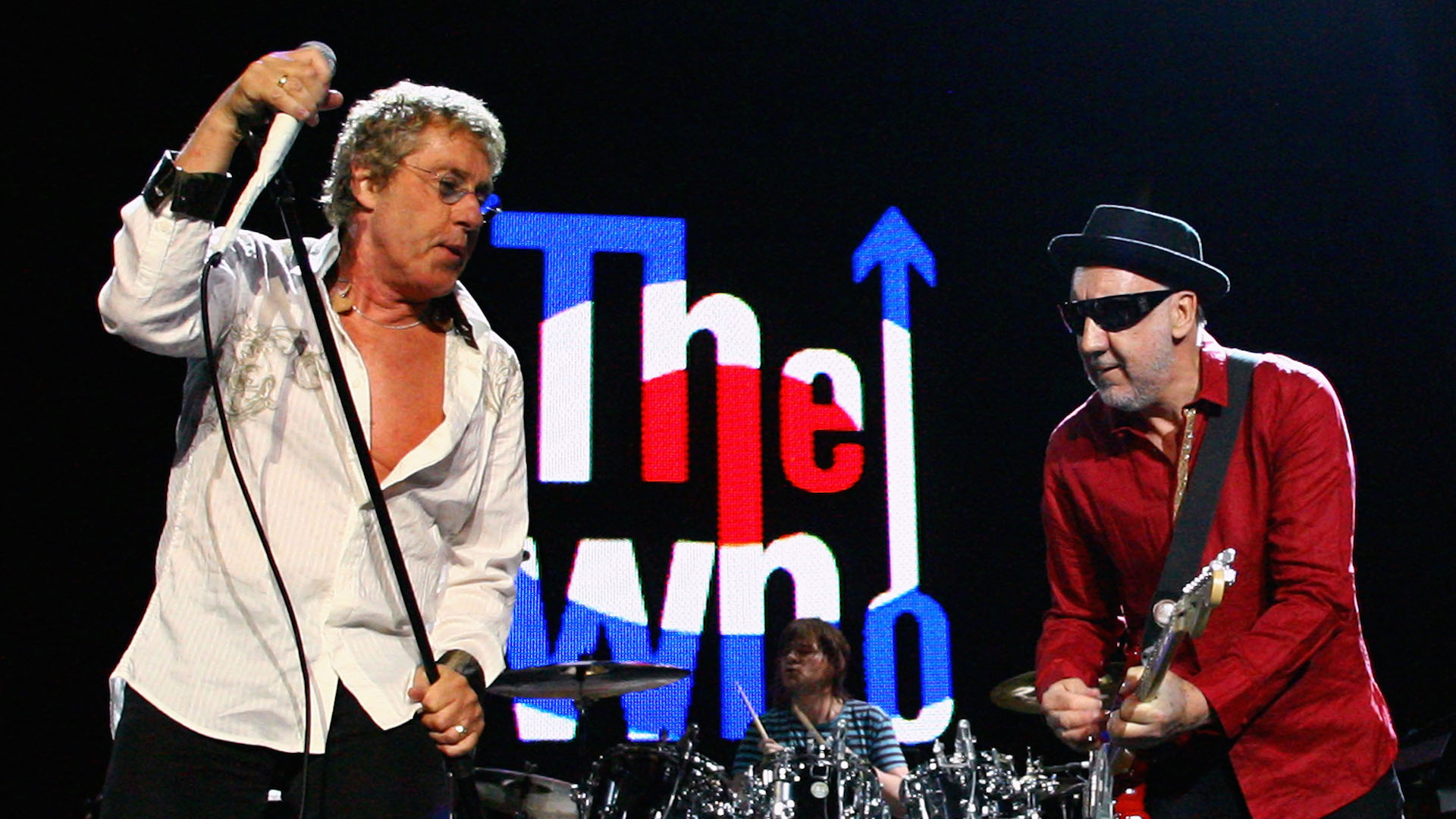
Whether for his chord wizardry, brilliant rhythm, easy physicality or punk intensity, The Who’s Pete Townshend has inspired many greats who came after him.
“Pete Townshend doesn’t play many solos, which might be why so many people don’t realize just how good he really is,” wrote Andy Summers for Rolling Stone. “But he’s so important to rock — he’s a visionary musician who really lit the whole thing up. His rhythm-guitar playing is extremely exciting and aggressive — he’s a savage player, in a way.”
11. Brian May
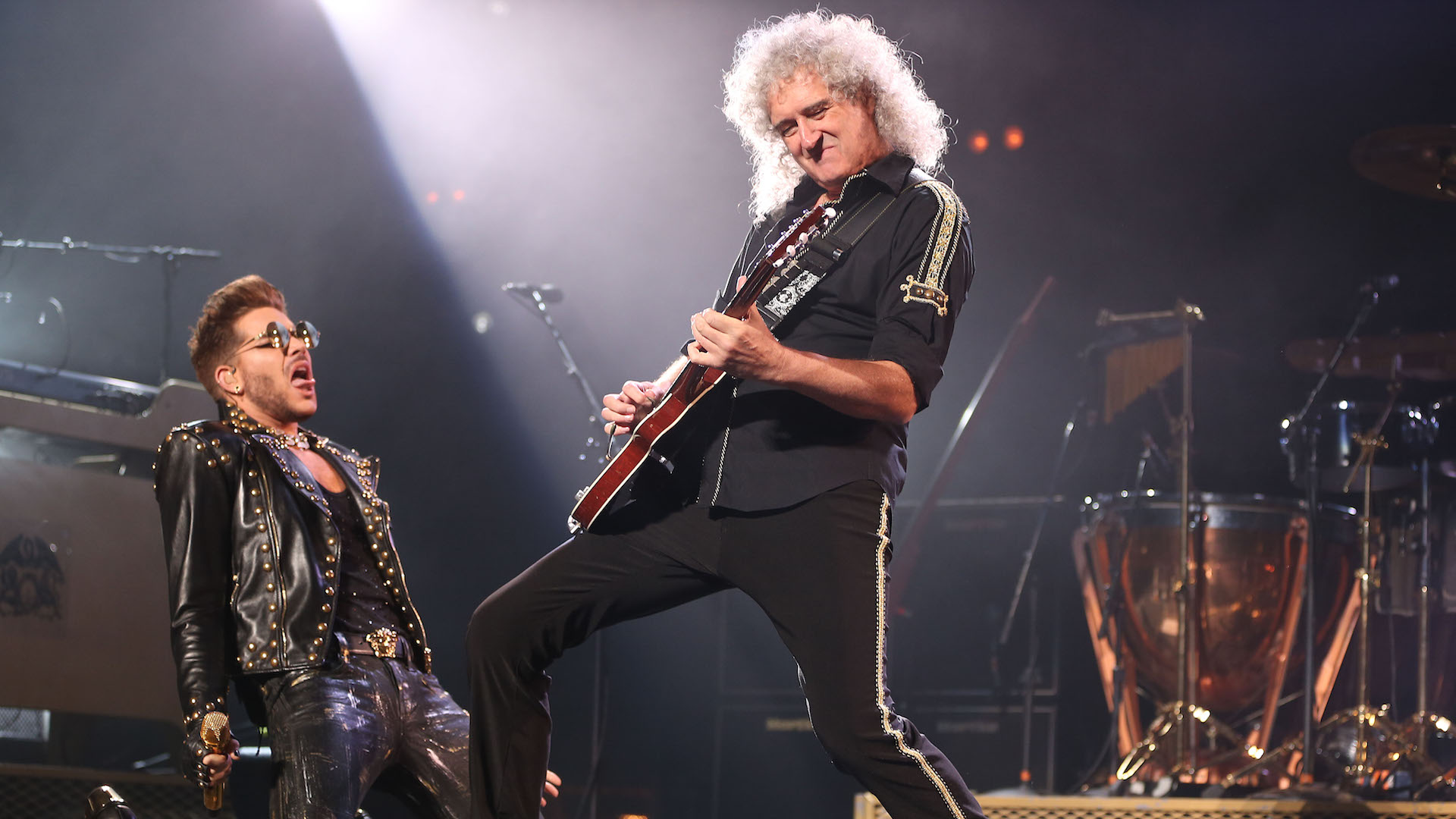
Most guitarists play guitar; Queen’s Brian May creates an entire orchestra with his. Often overshadowed by the greatness of the band as a whole or the former flamboyant frontman Freddie Mercury, May deserves recognition as one of rock music’s most imaginative players. In the 2012 Guitar World readers poll, May came second behind Eddie Van Halen — and it was a closely fought race.
10. Carlos Santana
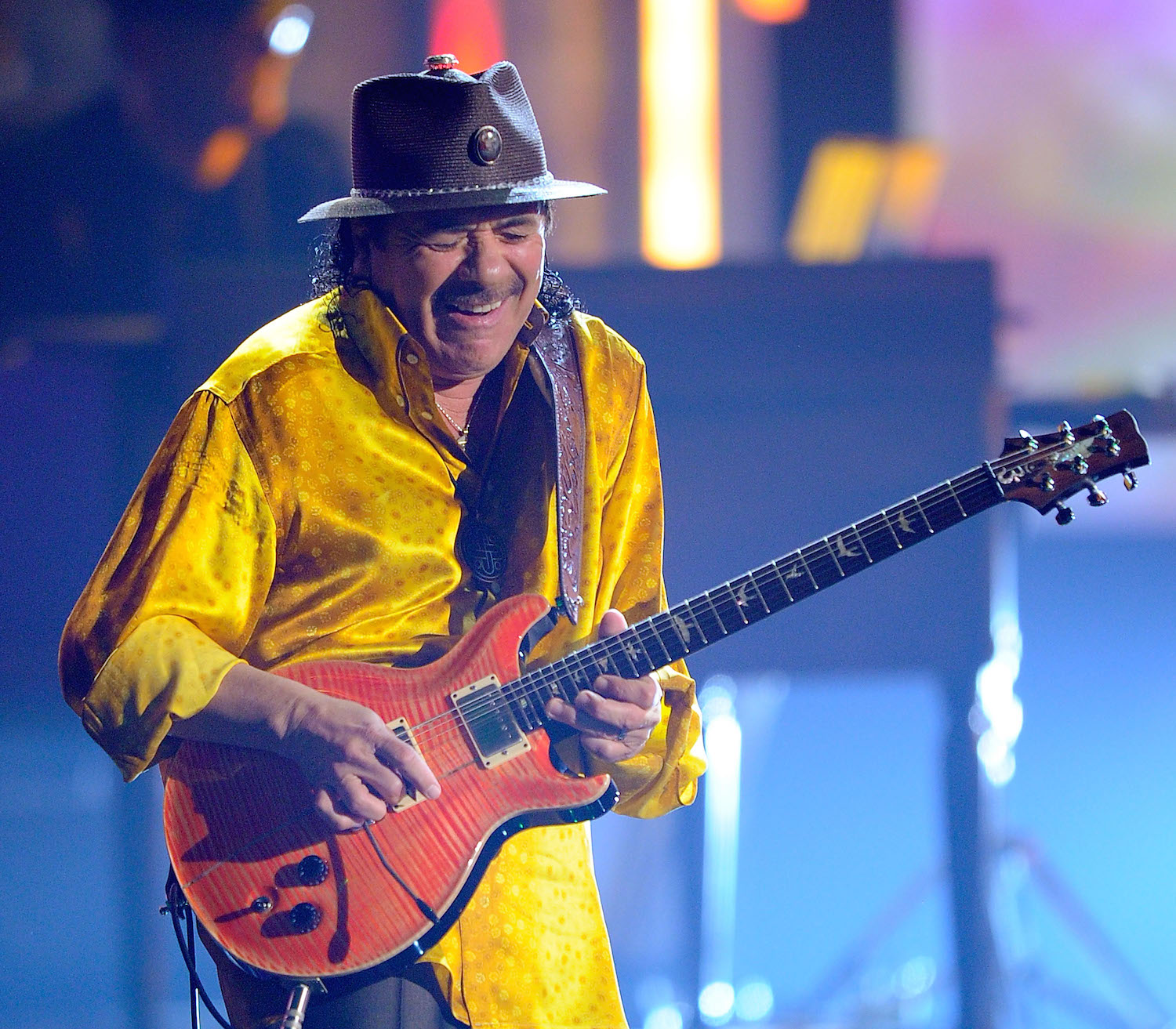
Not many guitarists are recognizable from one tone — but multiple Grammy winner Carlos Santana, with his blues-based lines against Latin and African rhythms, isn’t like most other guitarists.
“His playing was, and is, extraordinary,” The Strawbs’ Dave Cousins told Louder Sound. “I don’t know how he gets that liquid guitar style, which has so defined him. There’s a loping rhythmic feel to what he does, and when you combine that with his ability to solo like nobody else, you have the magic of Carlos Santana.”
9. Duane Allman
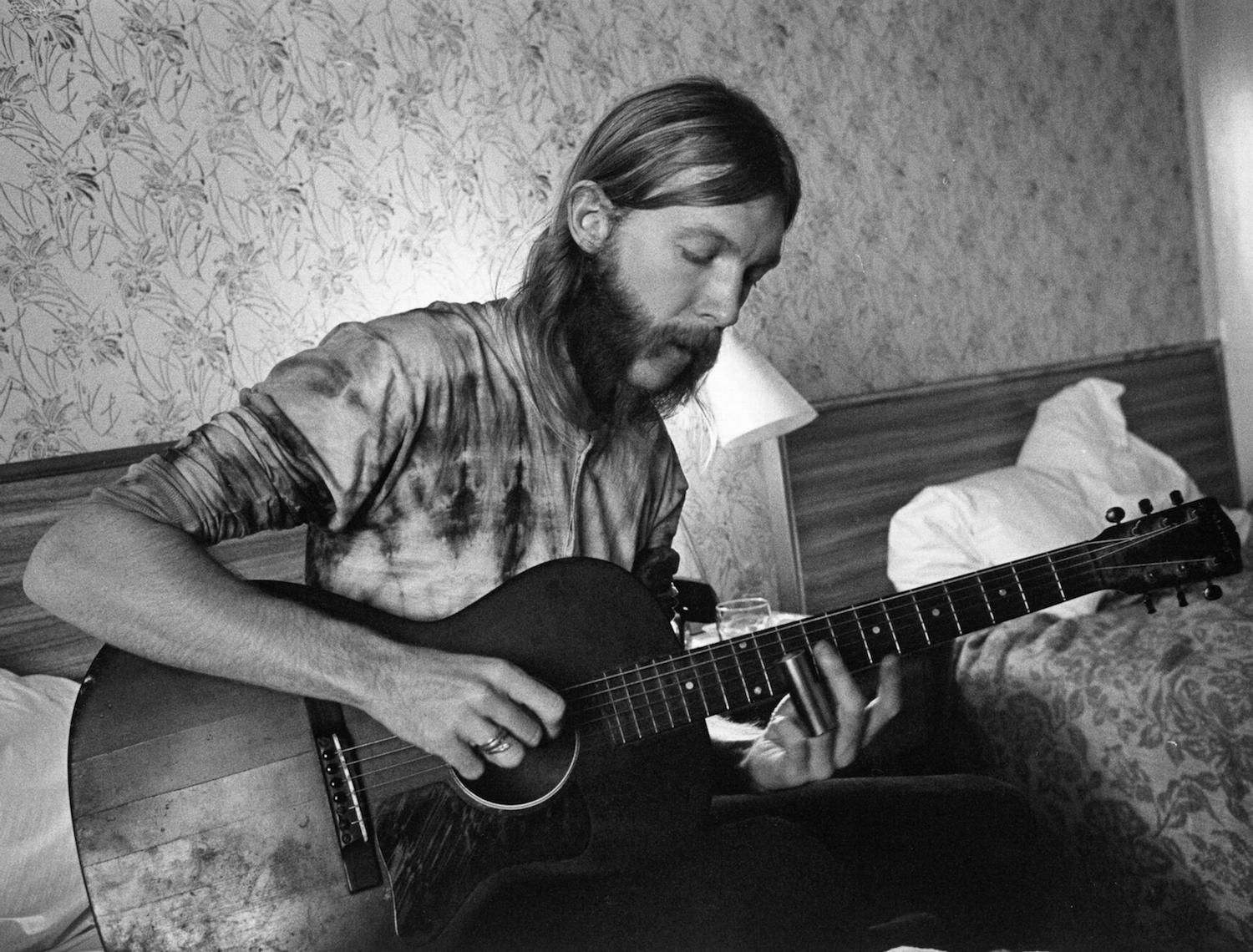
Duane Allman of the Allman Brothers died young but left a lasting legacy: creative improvisational skills and eloquent slide guitar playing.
“If I was putting my favorite guitar solos in order then Duane Allman’s on Wilson Pickett’s version of ‘Hey Jude’ would probably be at number one,” Blackberry Smoke’s Charlie Starr told Louder Sound. “This was the moment that historians say southern rock ‘n’ roll music started. In that type of music at the time, that rhythm and blues and soul music, nothing like that had ever been heard in a song before.”
8. B.B. King
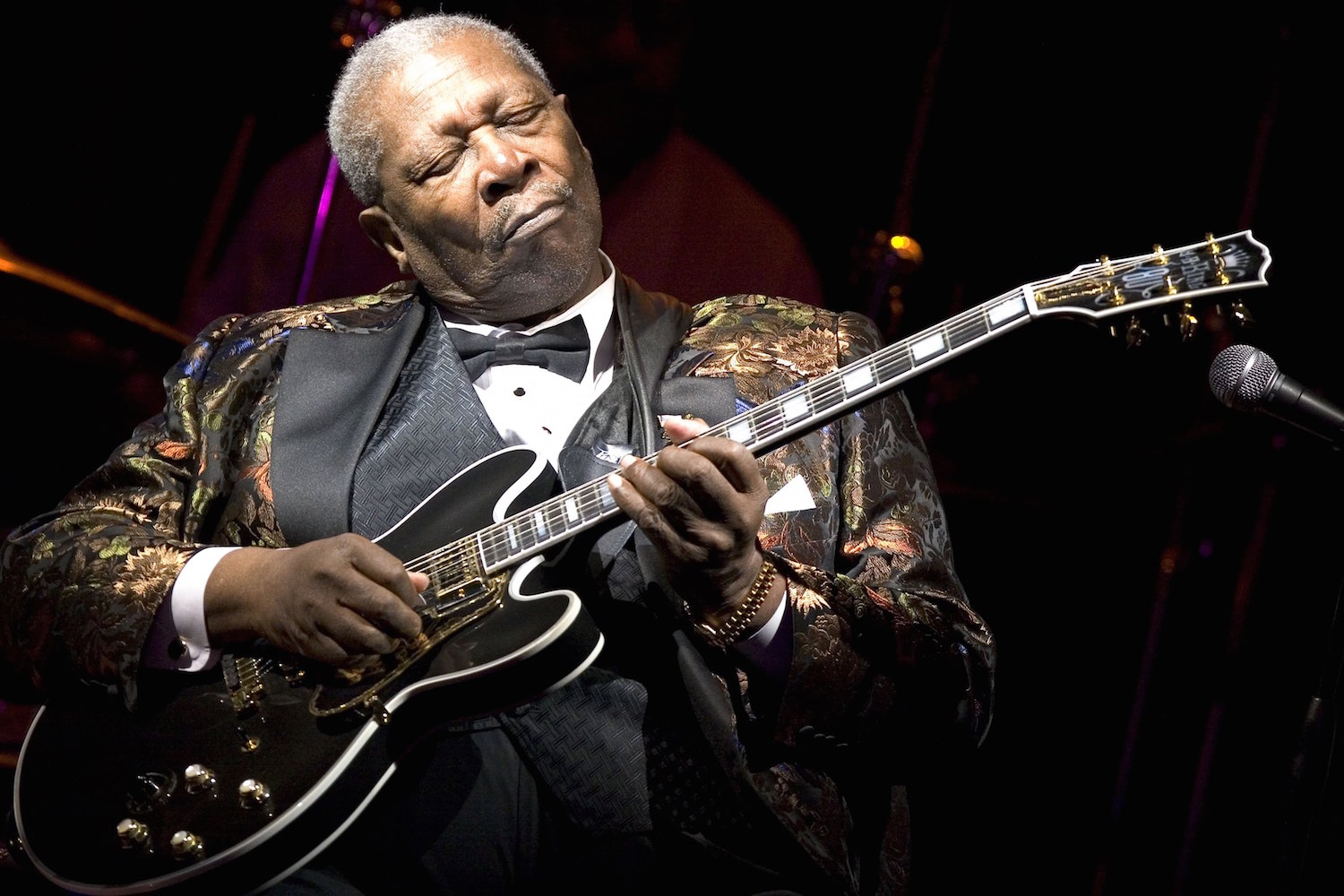
The “King of the Blues” is one of the most influential blues musicians of all time and was a tireless performer, clocking more than 200 shows per year well into his 70s. After he died in 2015 at age 89, tributes poured in from everyone from Richie Sambora to Gladys Knight.
“He plays in shortened bursts, with a richness and robust delivery,” wrote Billy Gibbons for Rolling Stone. “This was sophisticated soloing. It’s so identifiable, so clear, it could be written out […] B.B. was a genuine soloist.”
7. Jeff Beck
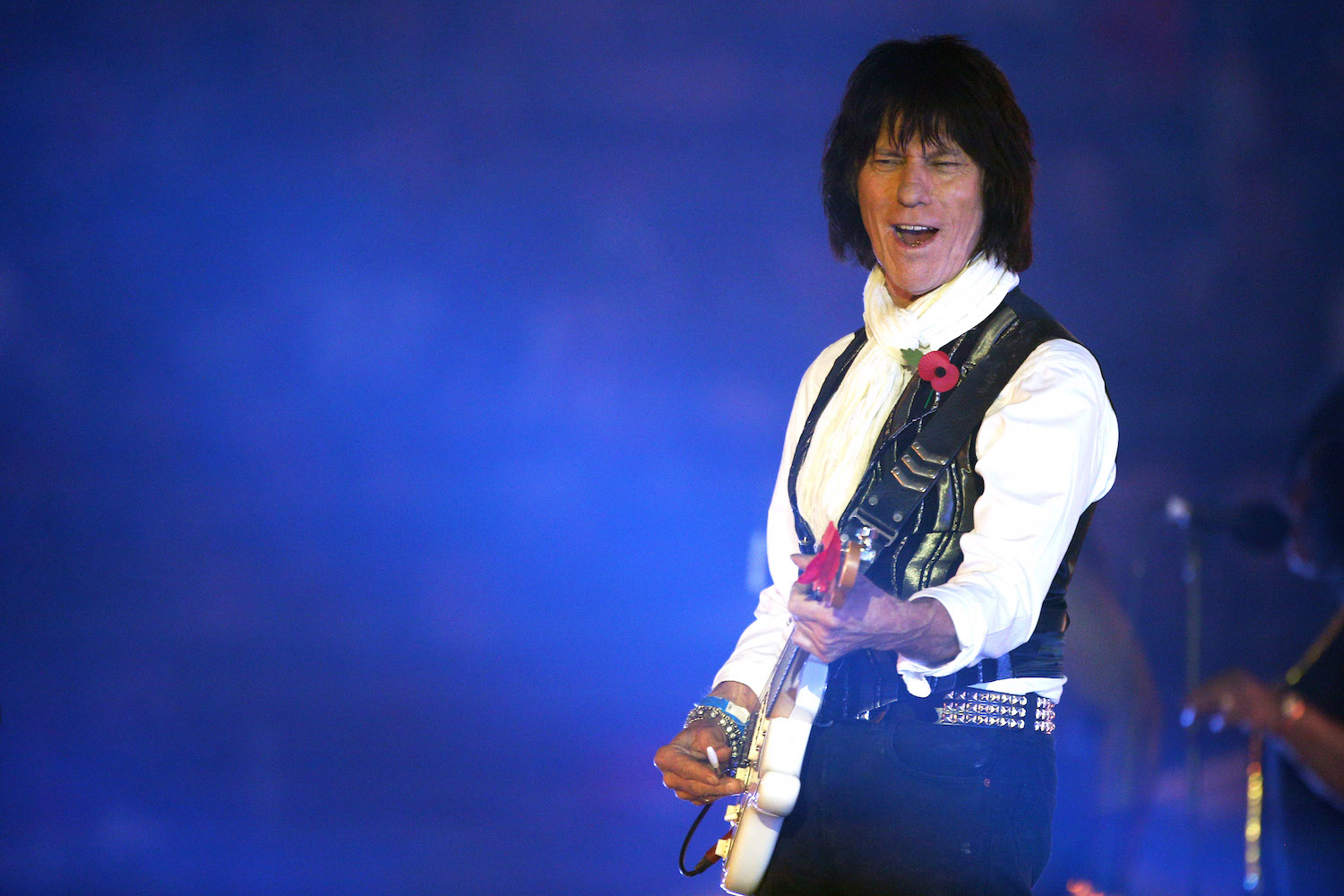
Two-time Rock and Roll Hall of Fame inductee Jeff Beck, who is best known for his time with The Yardbirds but has also appeared on albums by Kate Bush, Rod Stewart, Tina Turner, Mick Jagger, Les Paul, Morrissey, Donovan, Diana Ross, Jon Bon Jovi, Malcolm McLaren, Stevie Wonder and ZZ Top, combines technique with personality without sacrificing either.
“In many ways, he just is the best guitar player,” David Gilmour told Louder Sound. “He is still, after 40-something years since he came to prominence in the Yardbirds, the only person pushing forward in that way. He’s never retreading old ground, he’s always looking for a new challenge.”
6. David Gilmour
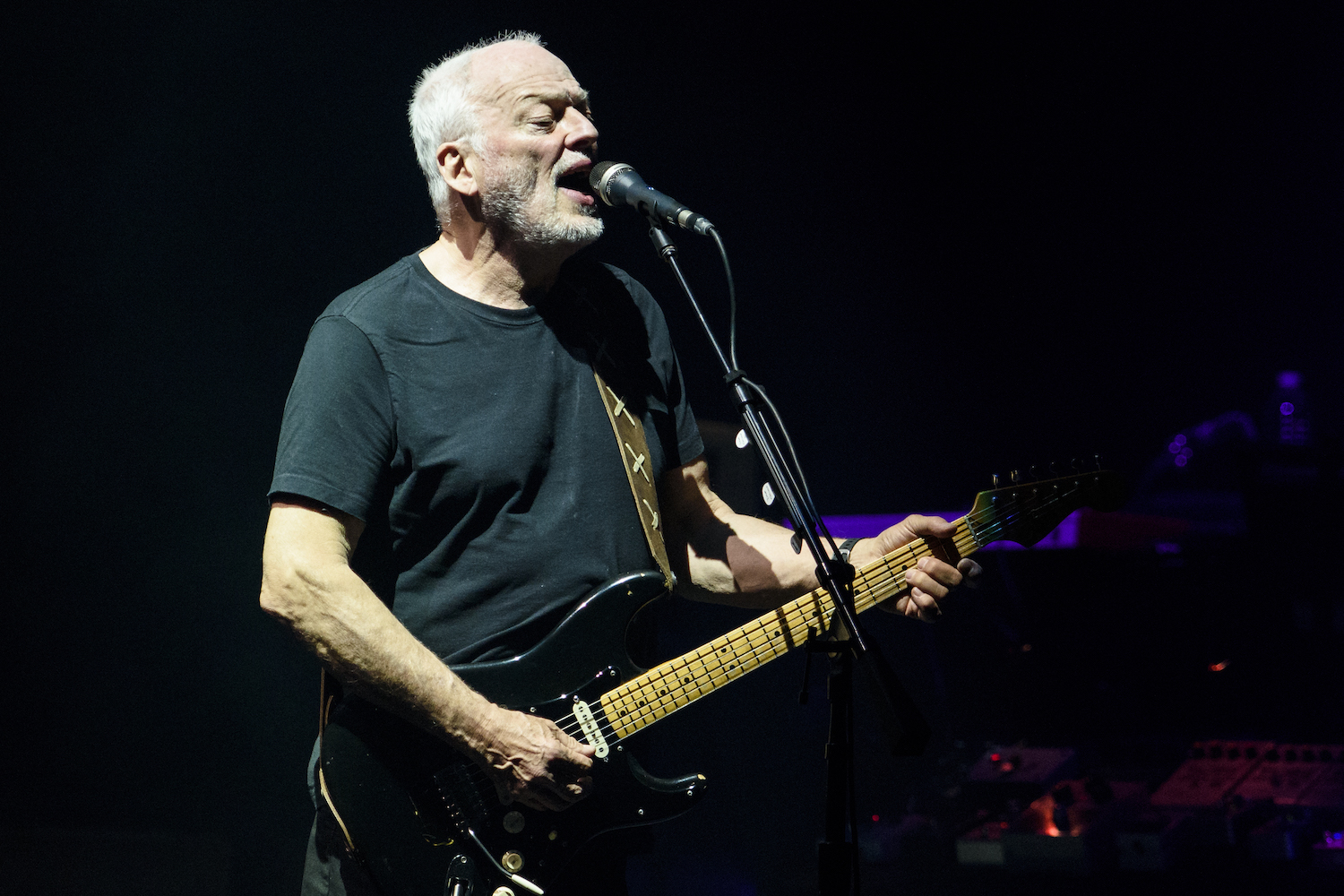
Pink Floyd’s David Gilmour, who was made a Commander of the Order of the British Empire for his services to music in 2005 and was awarded the Outstanding Contribution title at the Q Awards in 2008, is known for his graceful solos that drew heavily on the blues but also incorporated a range of other influences.
“A lot of what Gilmour does is about feel and emotion and atmosphere,” Marillion’s Steve Rothery told Louder Sound. “It’s about that ability that he has to put something into a song that lifts it and sort of augments the meaning, that adds to it in a way that you can hear it many, many times and still get that emotion.”
5. Stevie Ray Vaughan
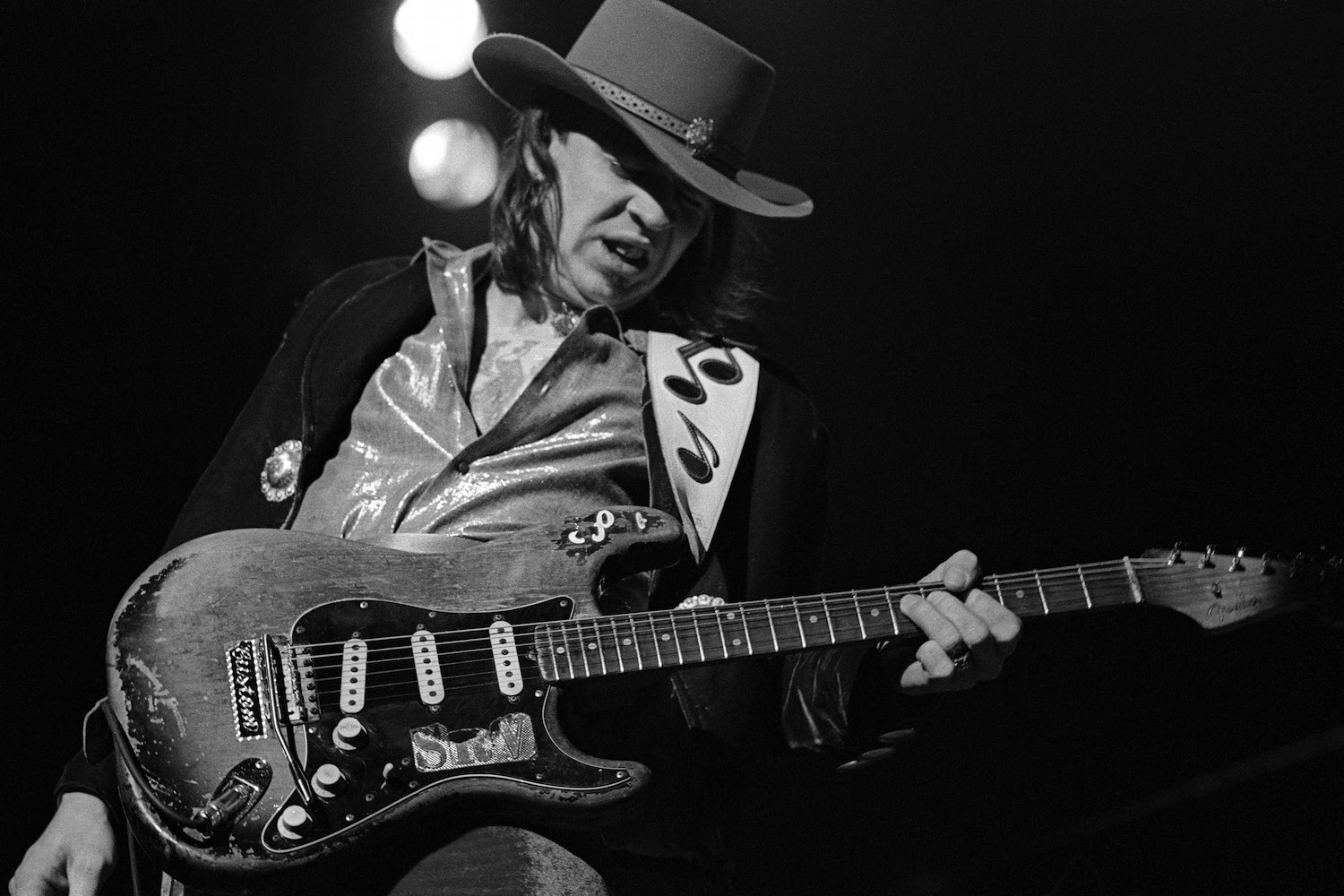
Despite a short-lived music career (he was killed in a helicopter crash in 1990 at age 35), Stevie Ray Vaughan’s eclectic style and unmistakable signature sound continue to influence generations of guitarists.
“Stevie was one of the reasons I wanted a Stratocaster — his tone, which I’ve never been able to get down, was just so big and bold and bright at the same time,” Gary Clark Jr. told Rolling Stone. “If you listen to his records and watch his videos, you can tell he’s just giving you everything he had. His passion is overwhelming.”
4. Eddie Van Halen
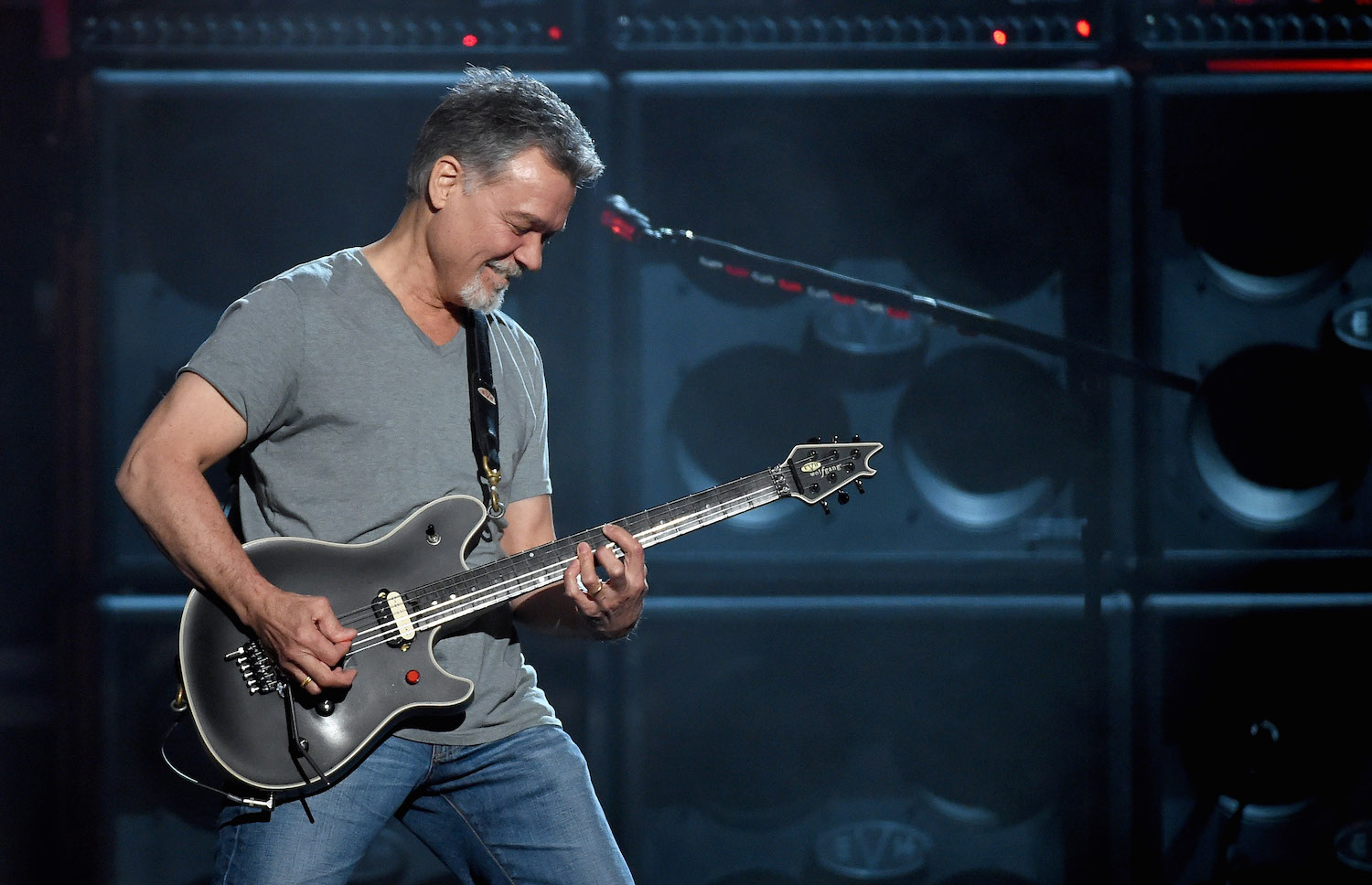
Voted the greatest guitarist of all time in a Guitar World readers poll in 2012, Eddie Van Halen plays guitar like nobody else, giving him that indefinable X-factor.
“Everyone talks about Van Halen’s sound, but it really has to do with his timing, his rhythm style and his phrasing. It’s more about that to me than the amp or whatever guitar he’s using,” musician Ritchie Kotzen told Louder Sound.
3. Eric Clapton
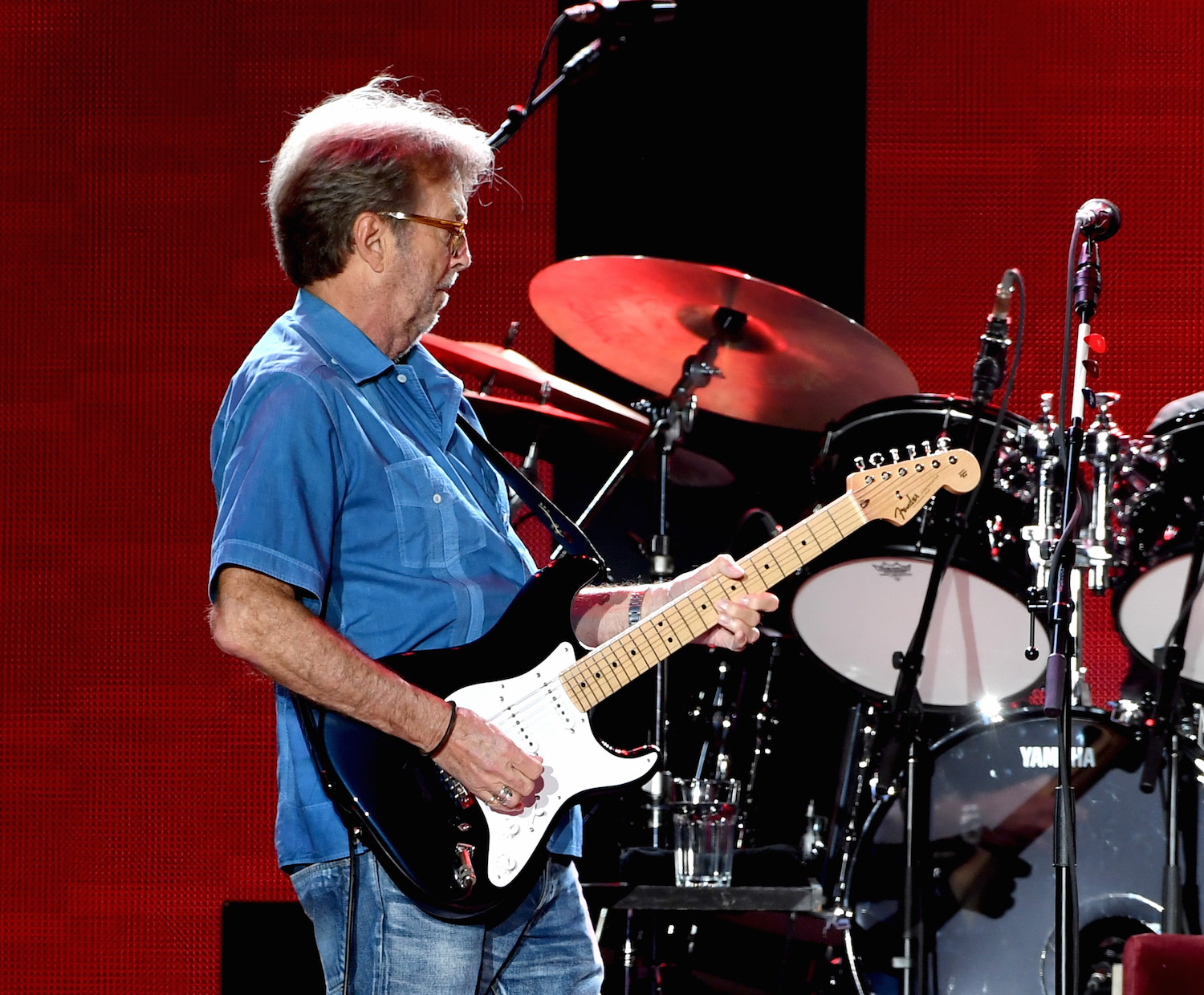
The only guitarist to be inducted three times into the Rock and Roll Hall of Fame (once as a solo artist and separately as a member of the Yardbirds and Cream), Eric Clapton is widely credited with revolutionizing the way guitar was played — with feedback, sustain and volume.
“There was a basic simplicity to his playing, his style, his vibe and his sound,” wrote Eddie Van Halen for Rolling Stone. “He took a Gibson guitar and plugged it into a Marshall, and that was it. The basics. The blues. His solos were melodic and memorable — and that’s what guitar solos should be, part of the song.”
2. Jimmy Page
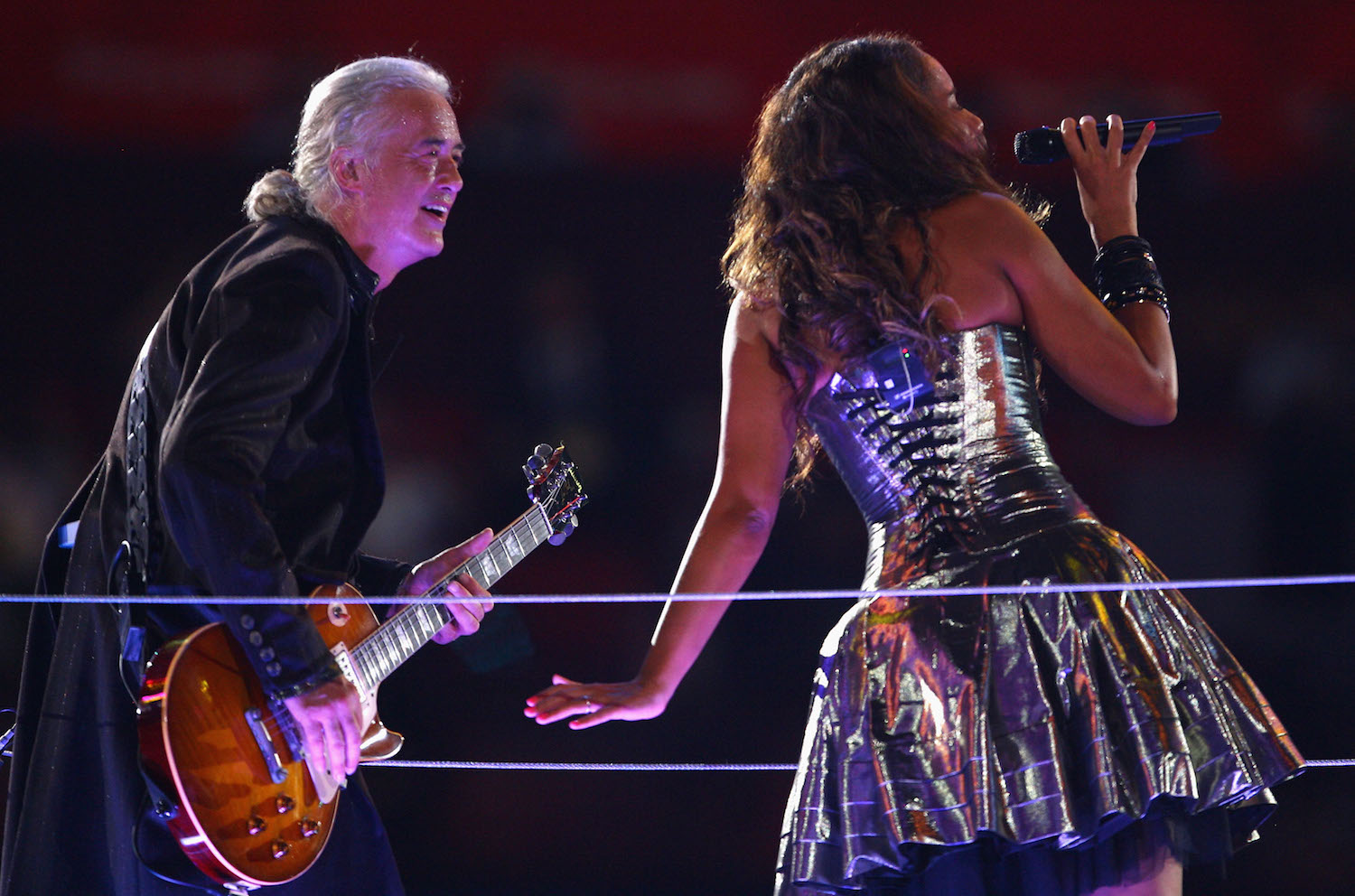
When it comes to versatility, master riffmaker Jimmy Page, Led Zeppelin’s legendary lead guitarist, has the edge over most. “When he set out to create ‘a marriage of blues, hard rock and acoustic music topped with heavy choruses,’ he did it flawlessly, melding folk music and hard rock in a way that seemed so natural that it’s hard to believe it wasn’t done before,” wrote Guitar World’s Josh Hart.
1. Jimi Hendrix
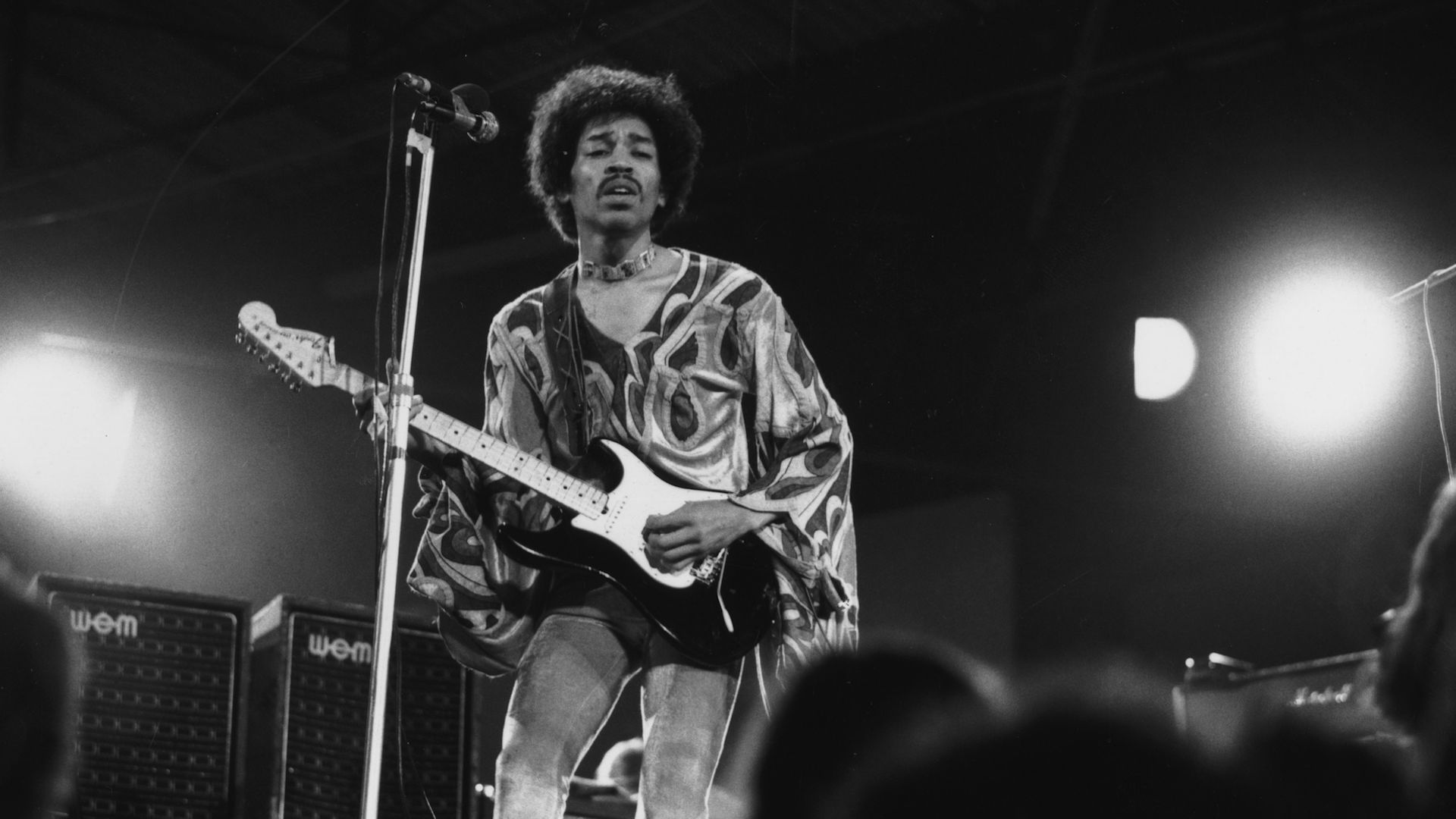
He’s Rolling Stone’s all-time No. 1 guitarist, the Ranker community agrees, and pretty much every list of the best guitarists of all time has him in the top three. He may not have been the most technically adept player, but he redefined the way an electric guitar could be played — and made it look effortless. “Jimi Hendrix exploded our idea of what rock music could be: He manipulated the guitar, the whammy bar, the studio and the stage,” wrote Tom Morello for Rolling Stone.
Sponsored Content

